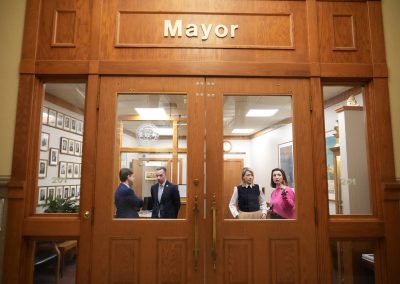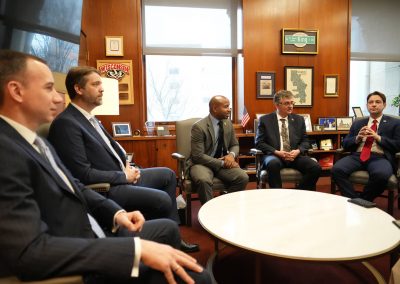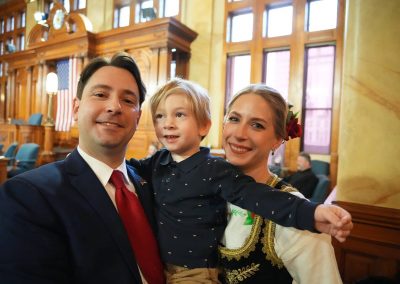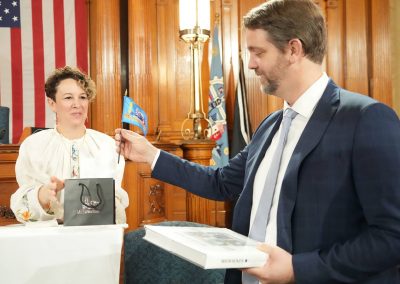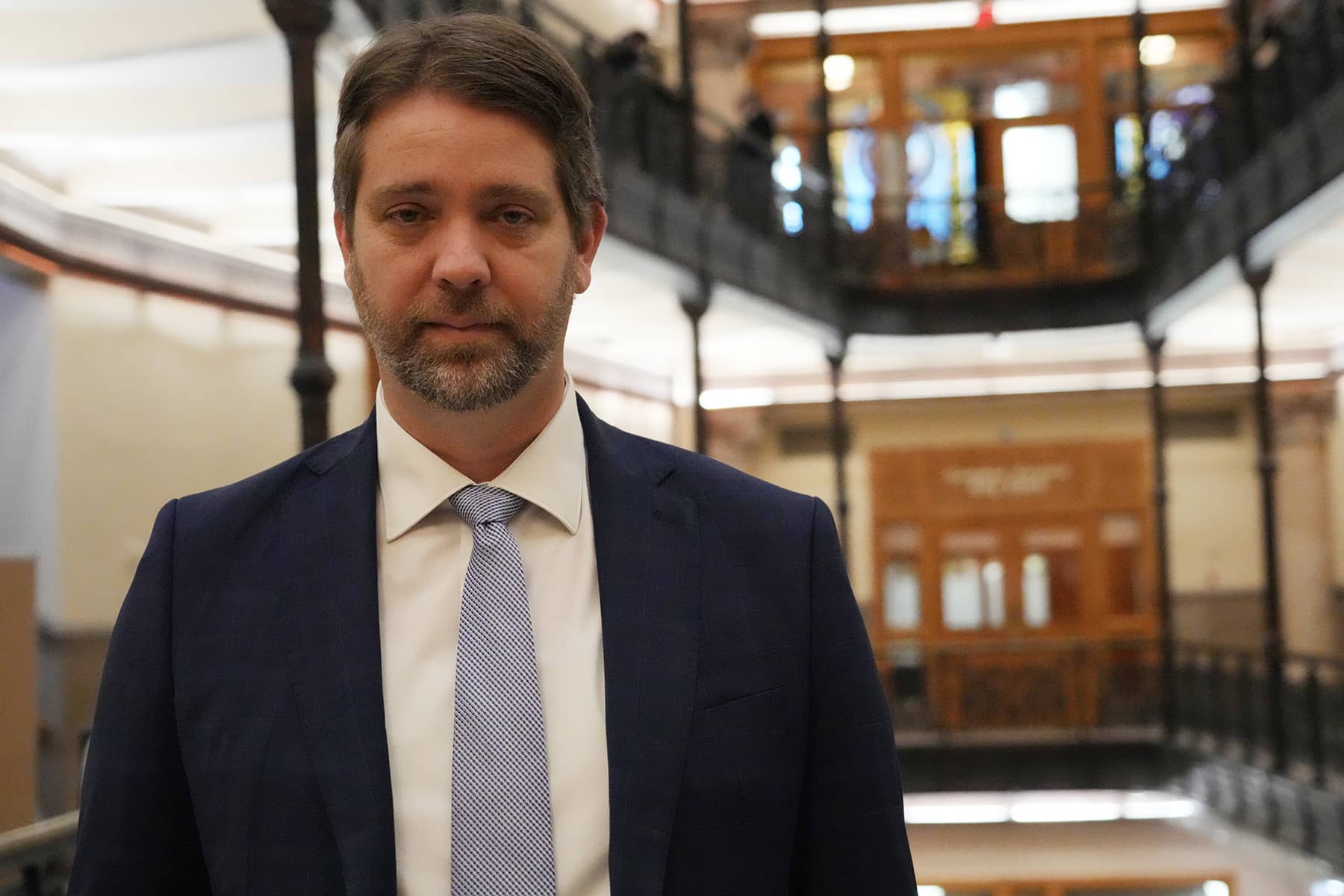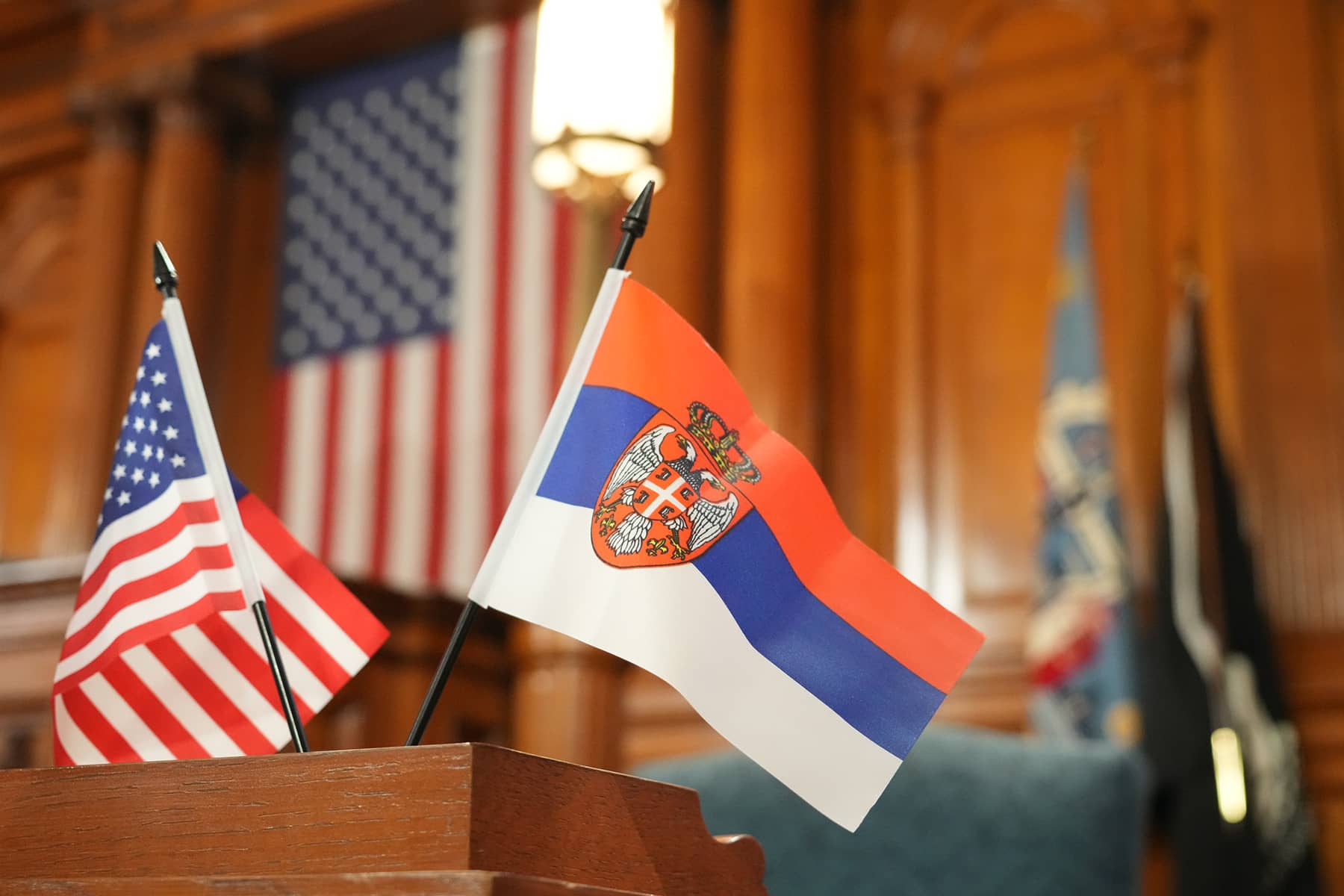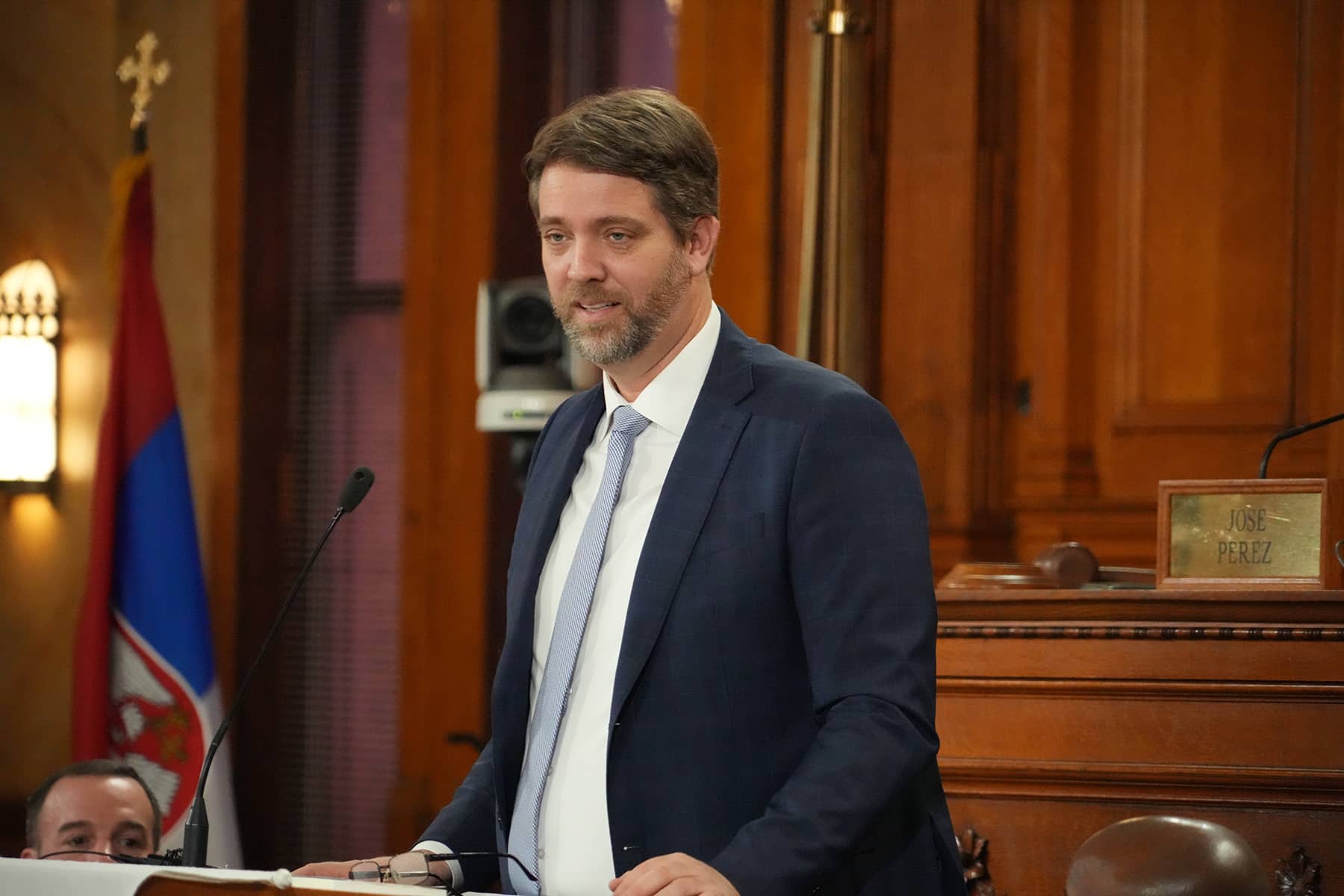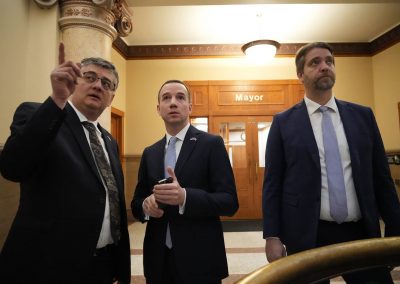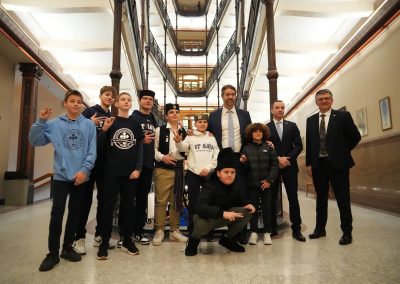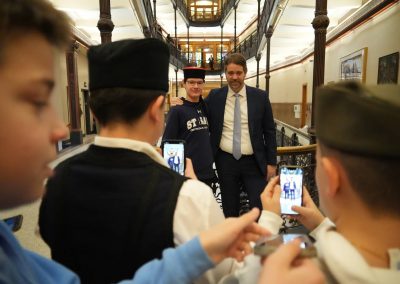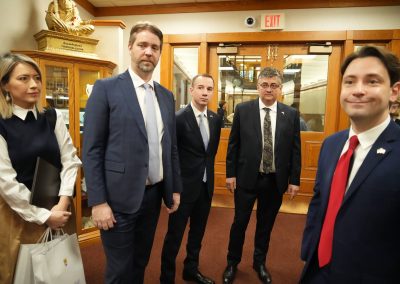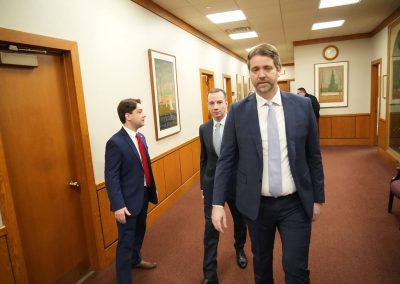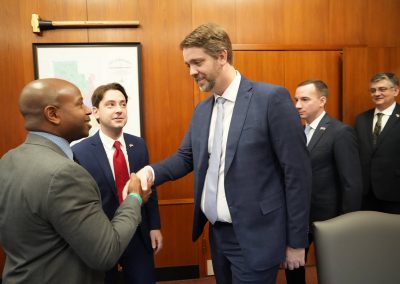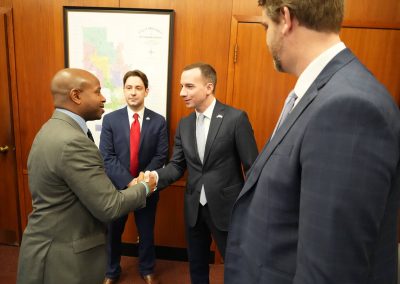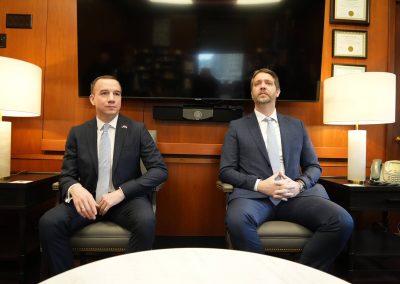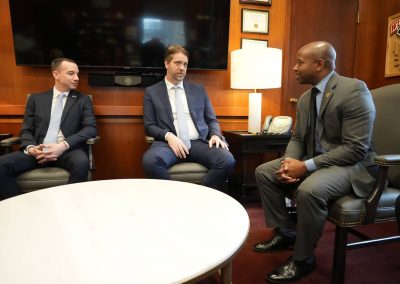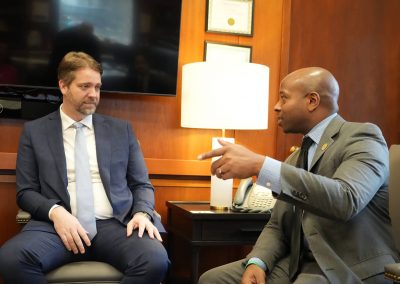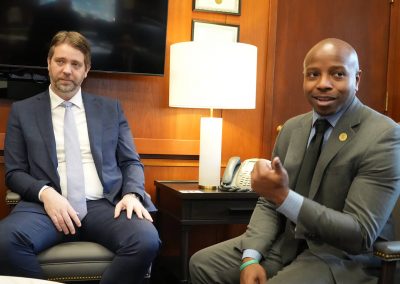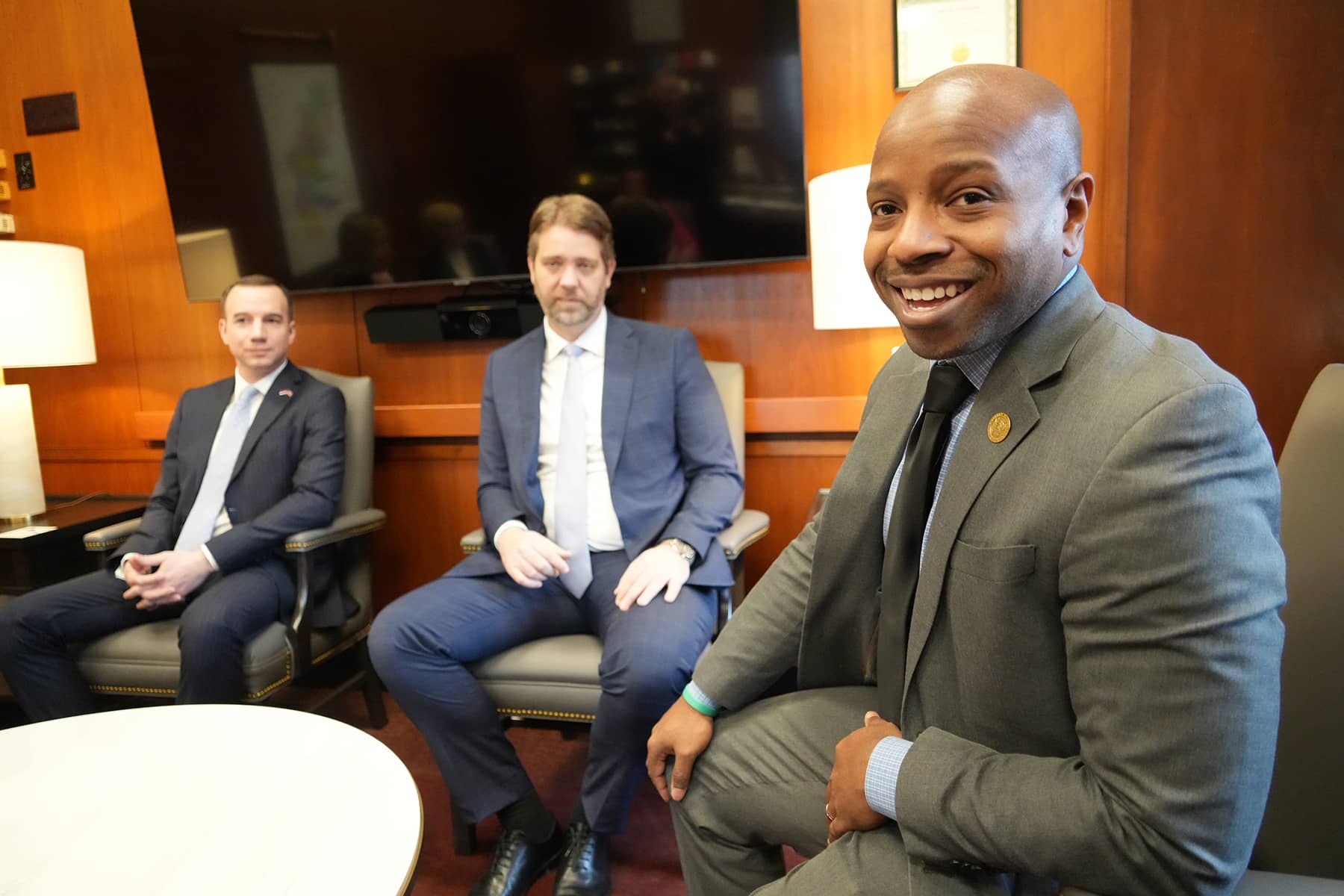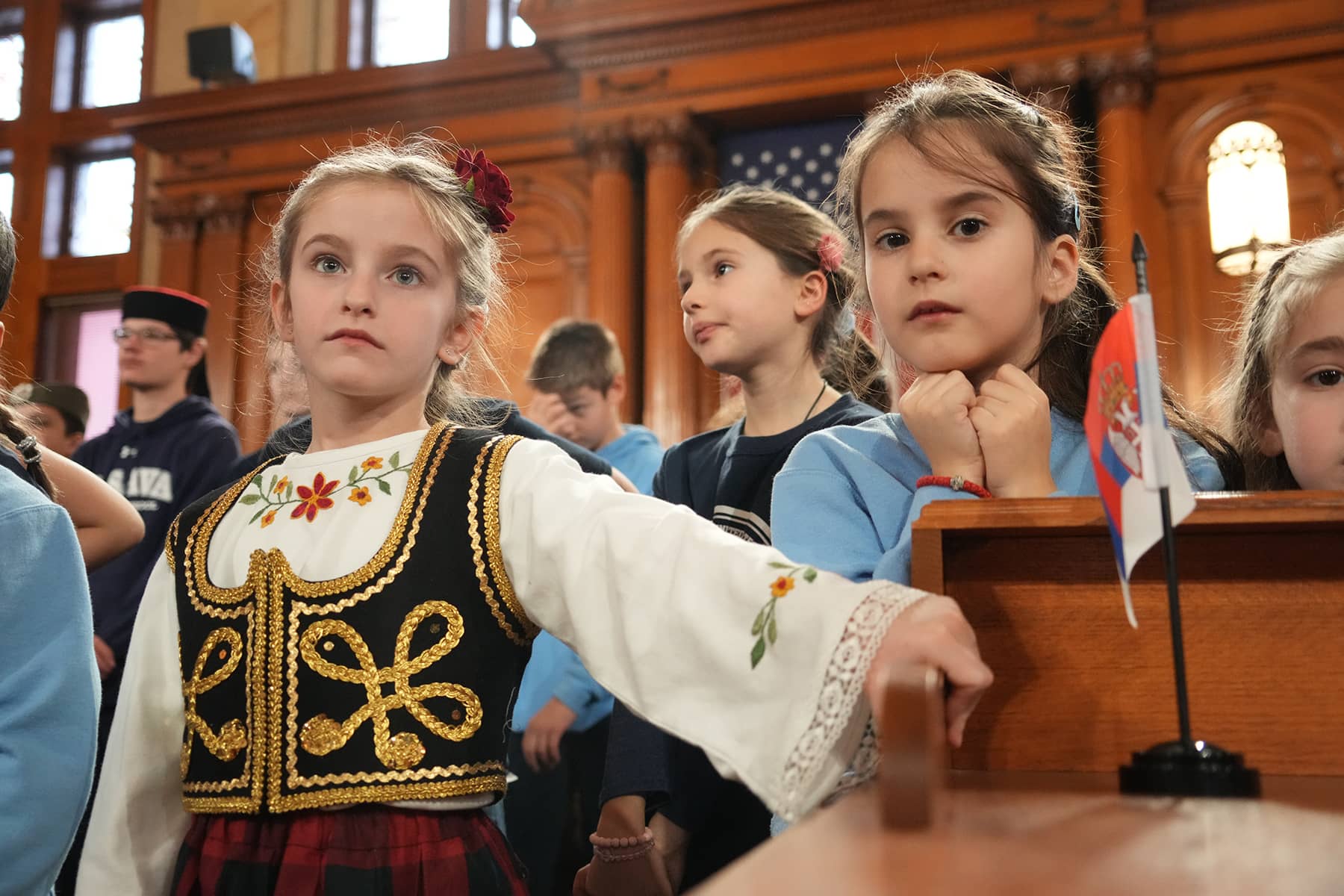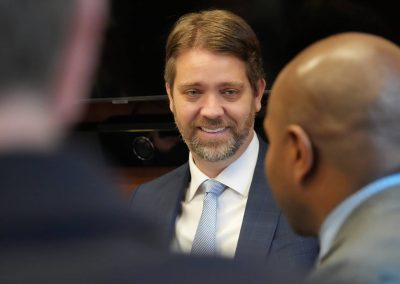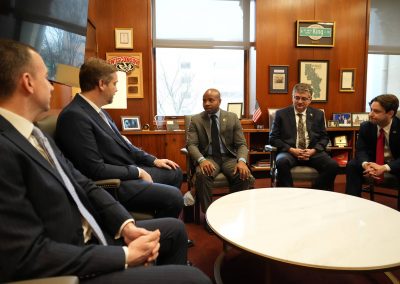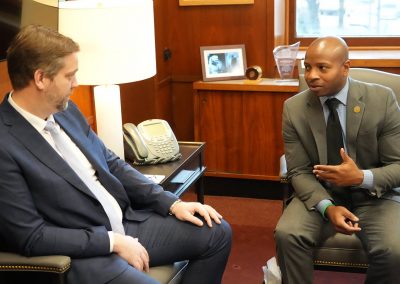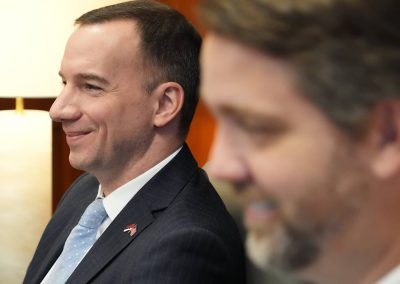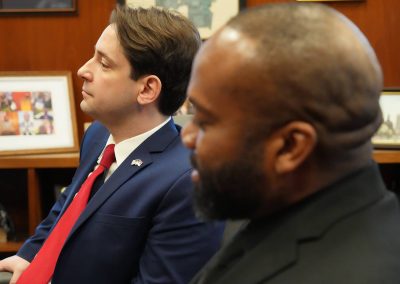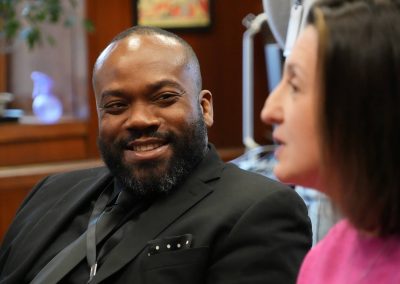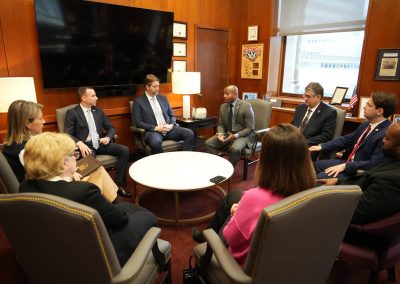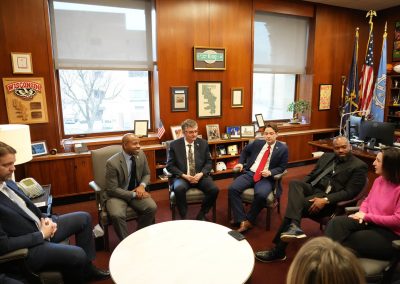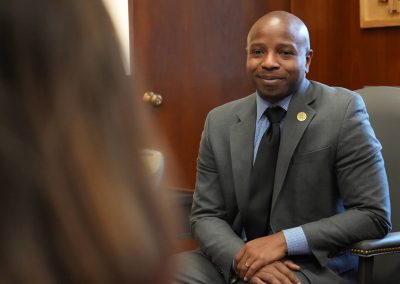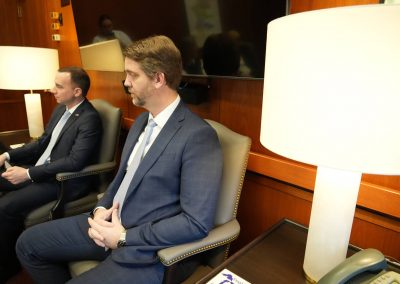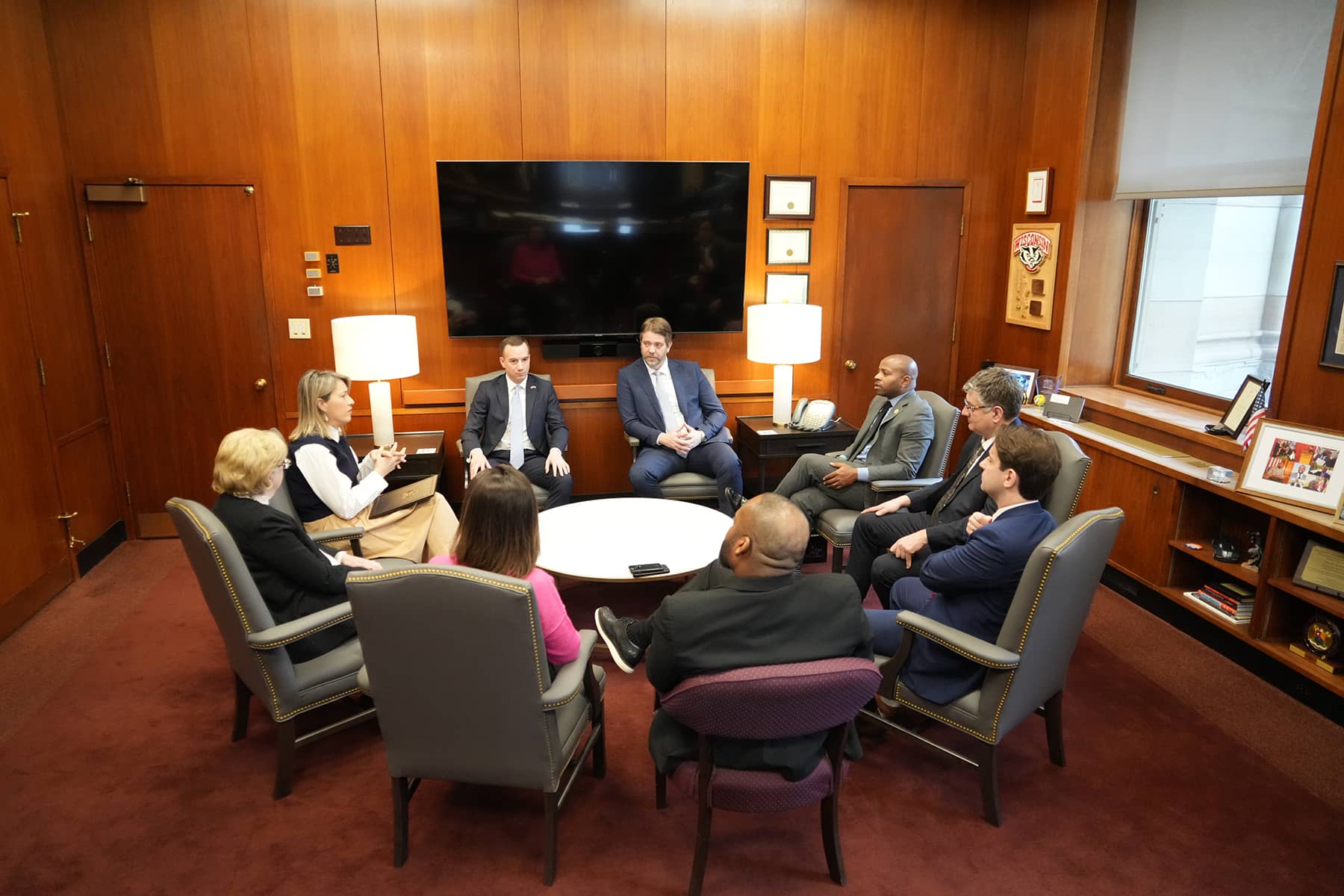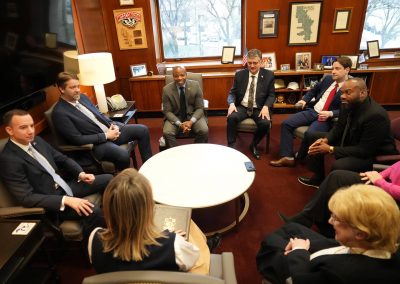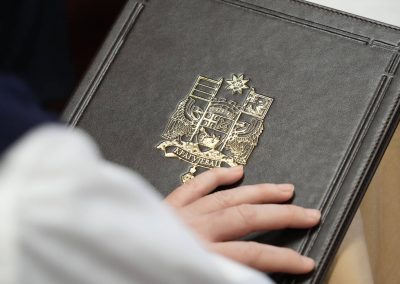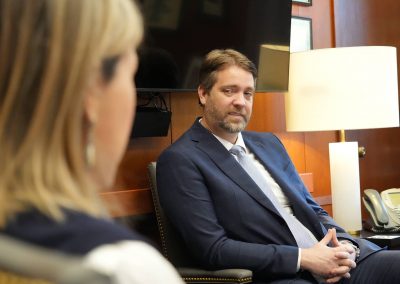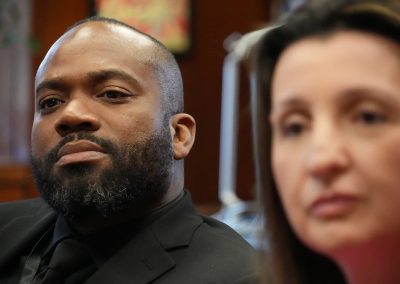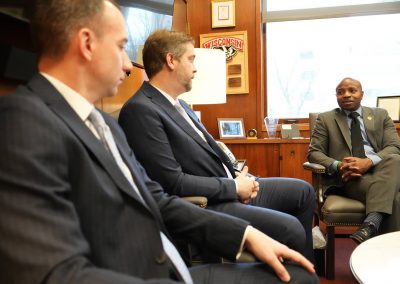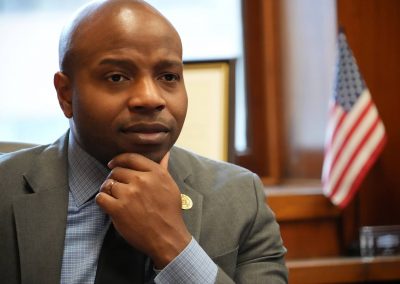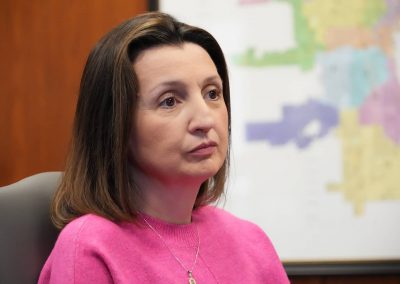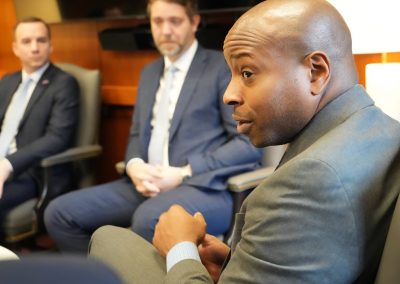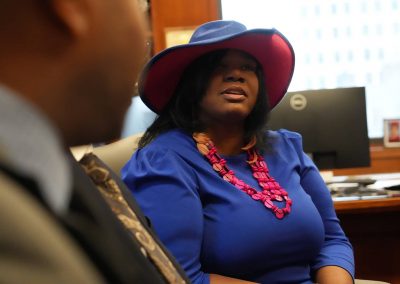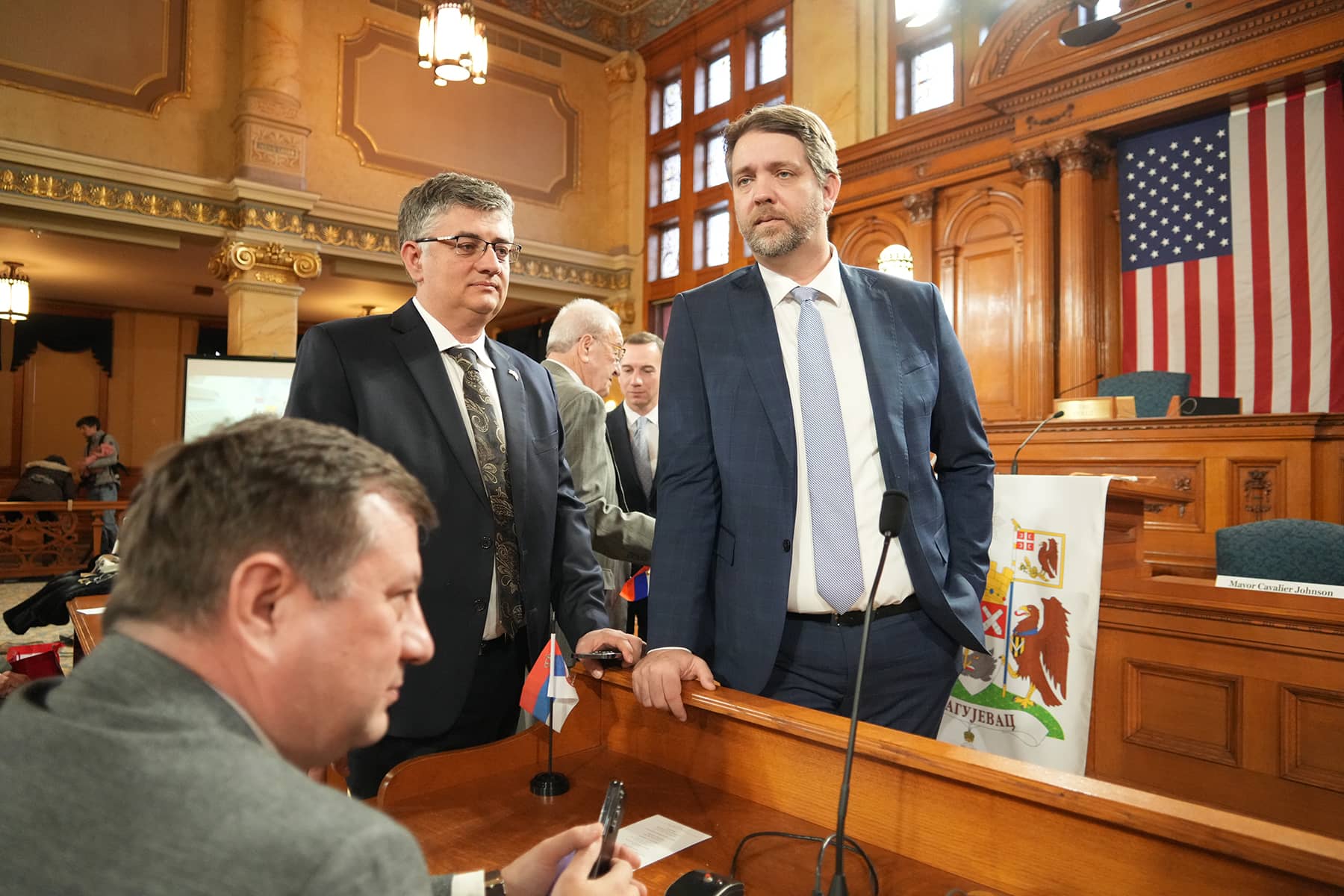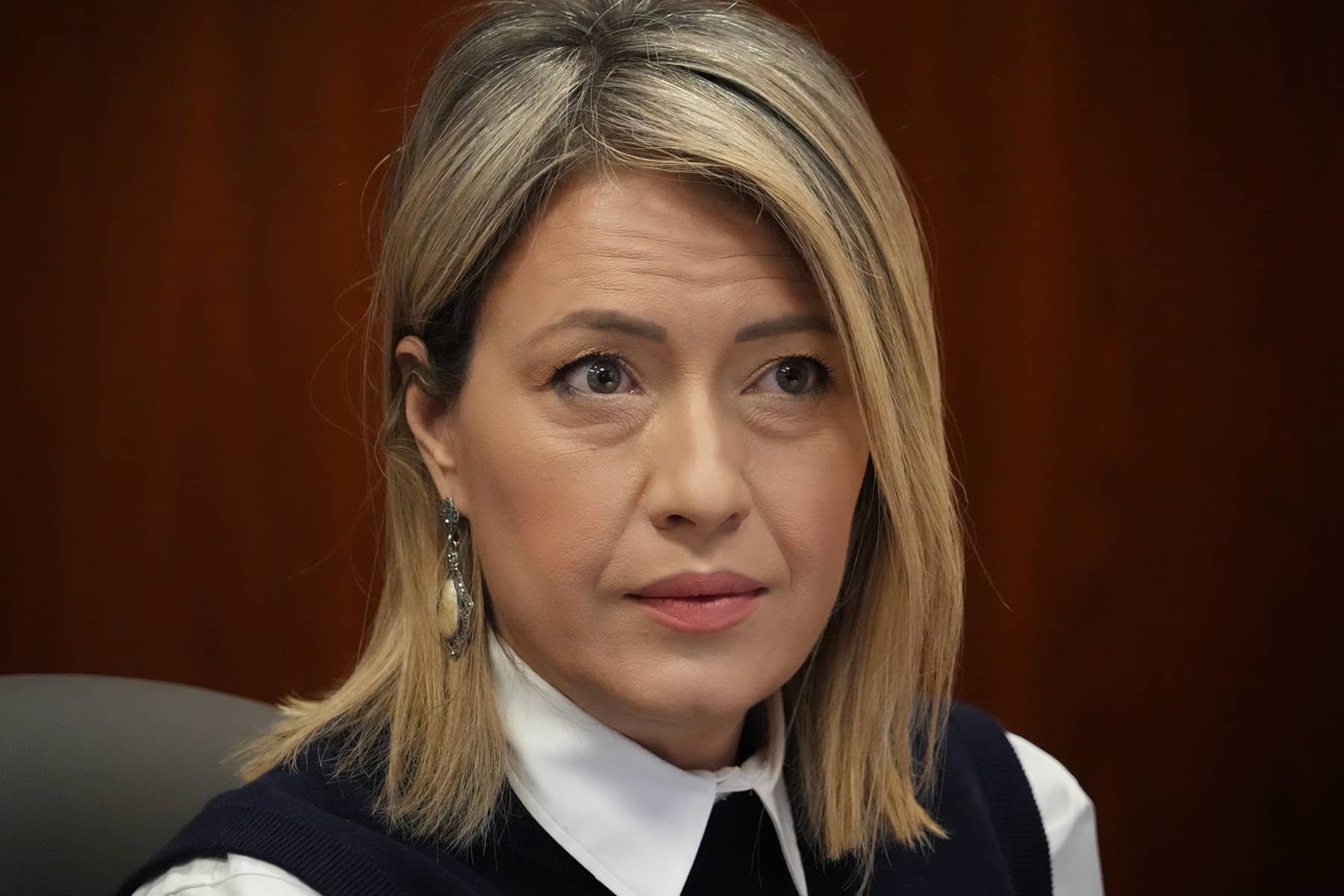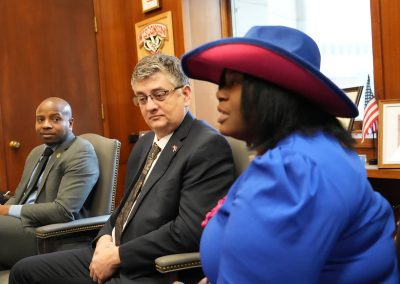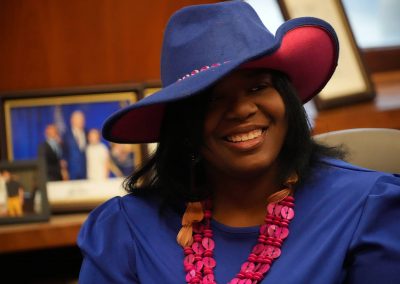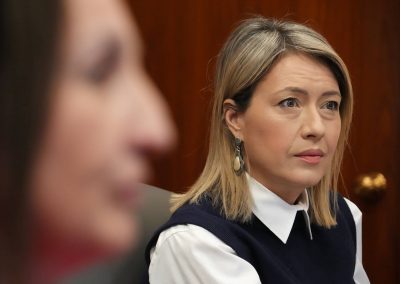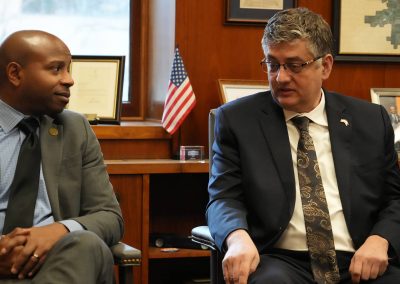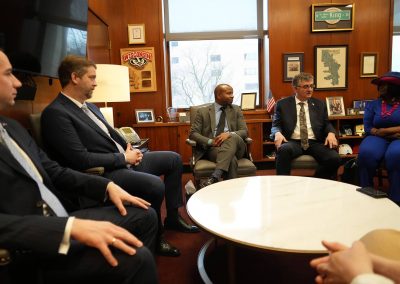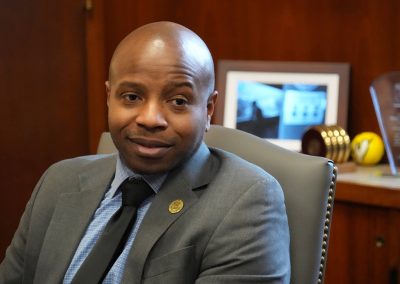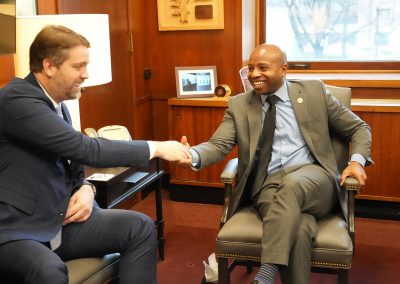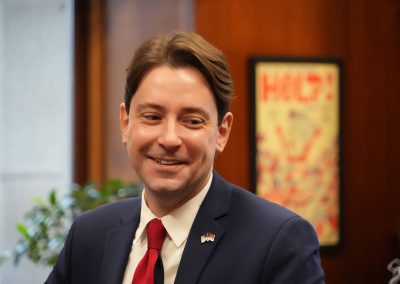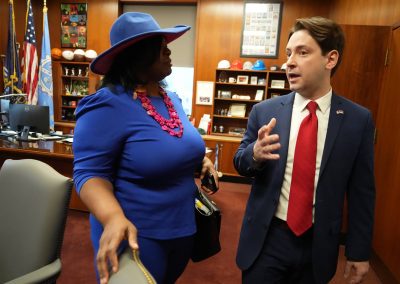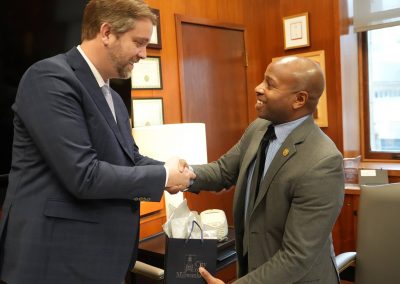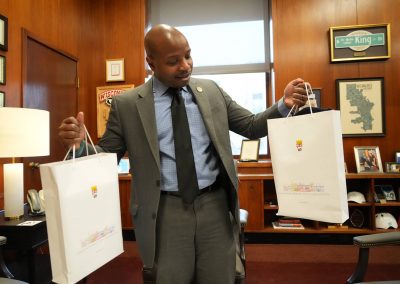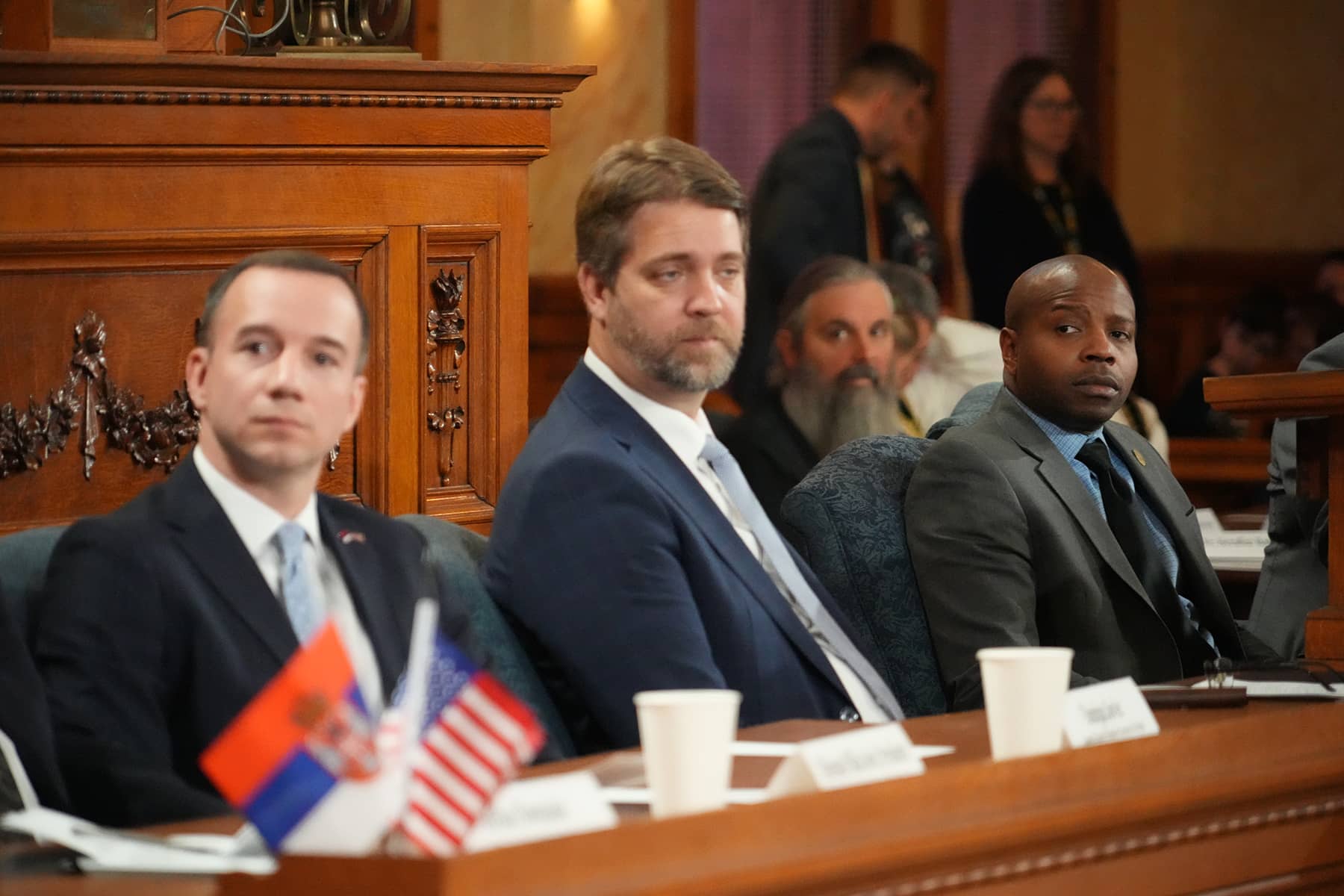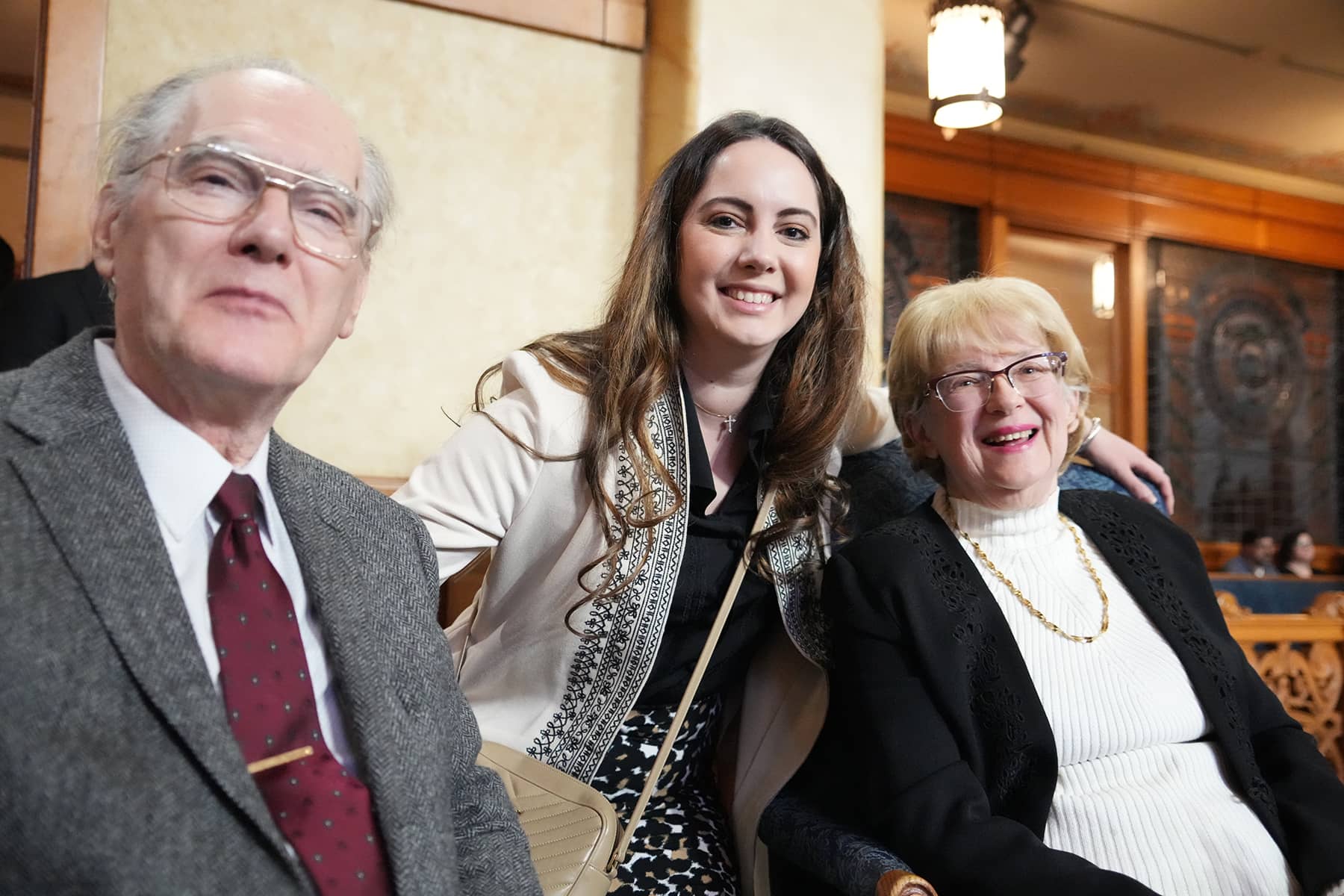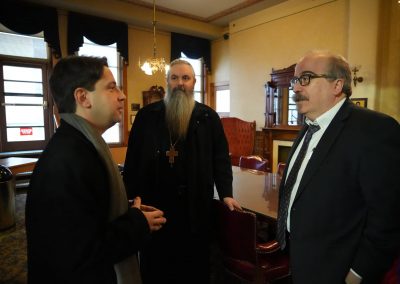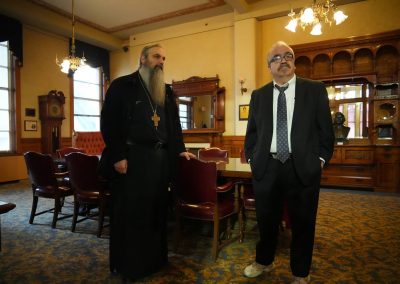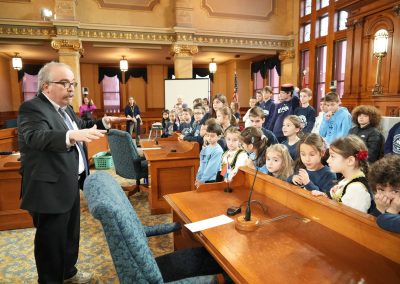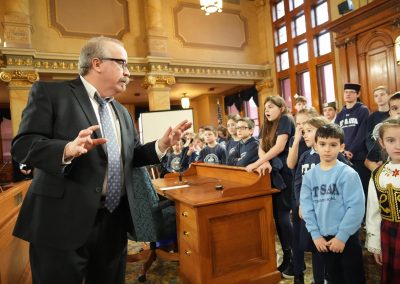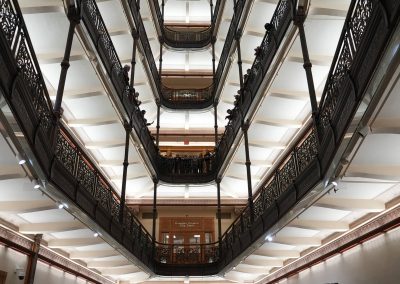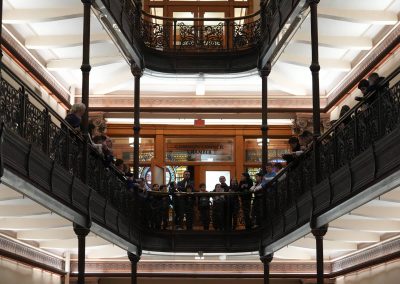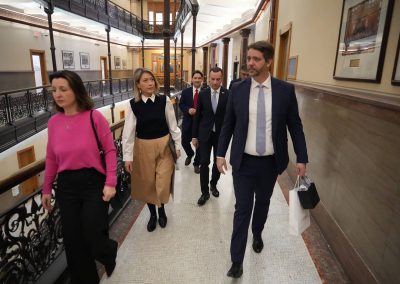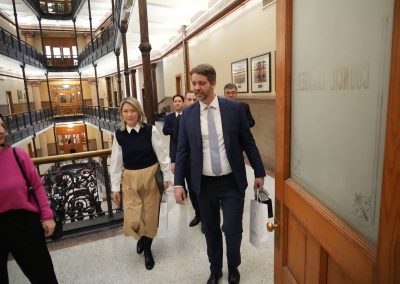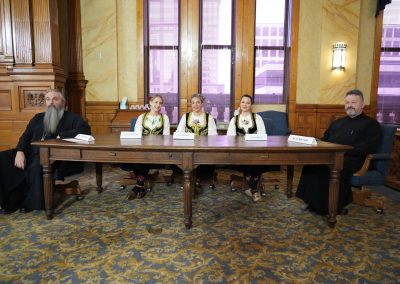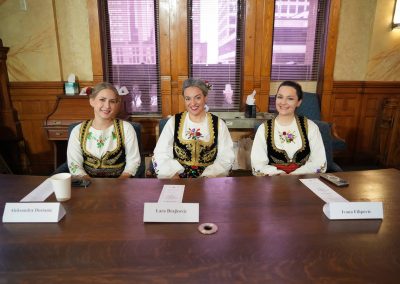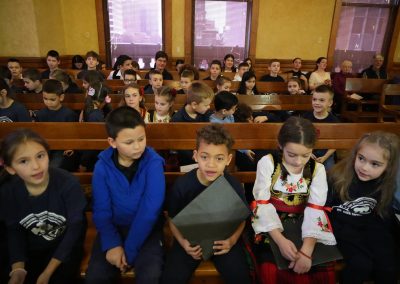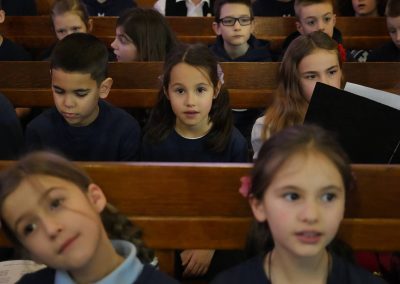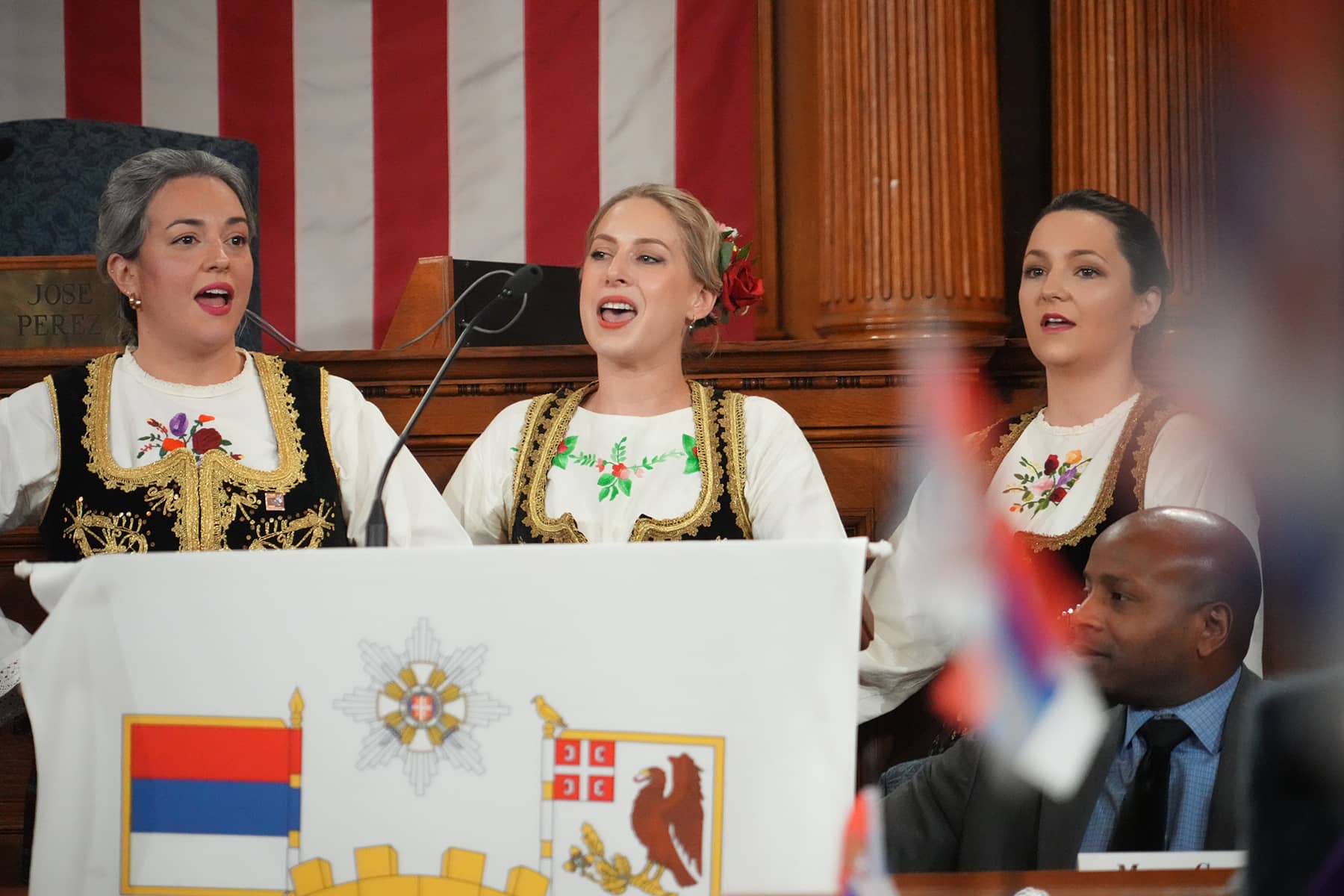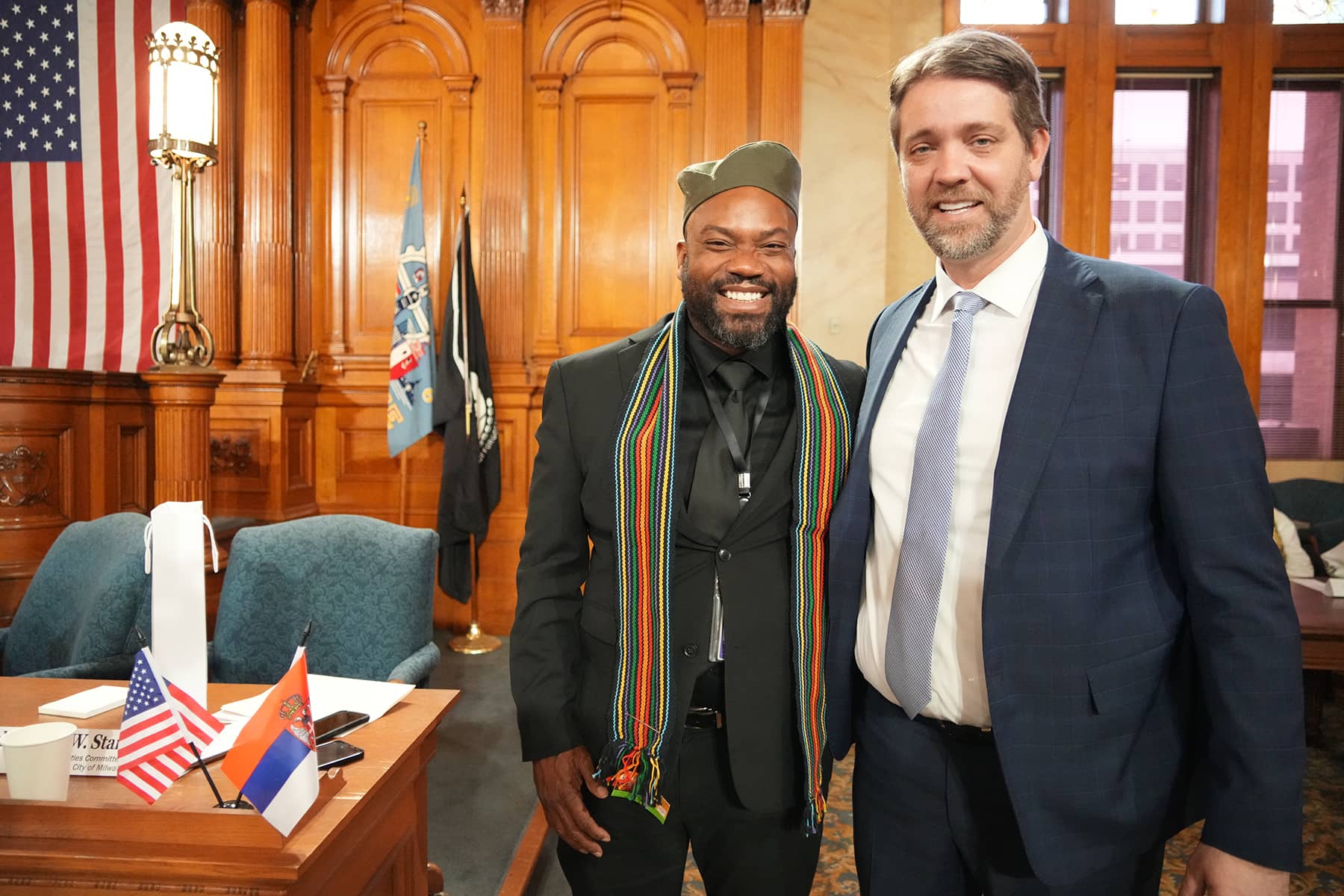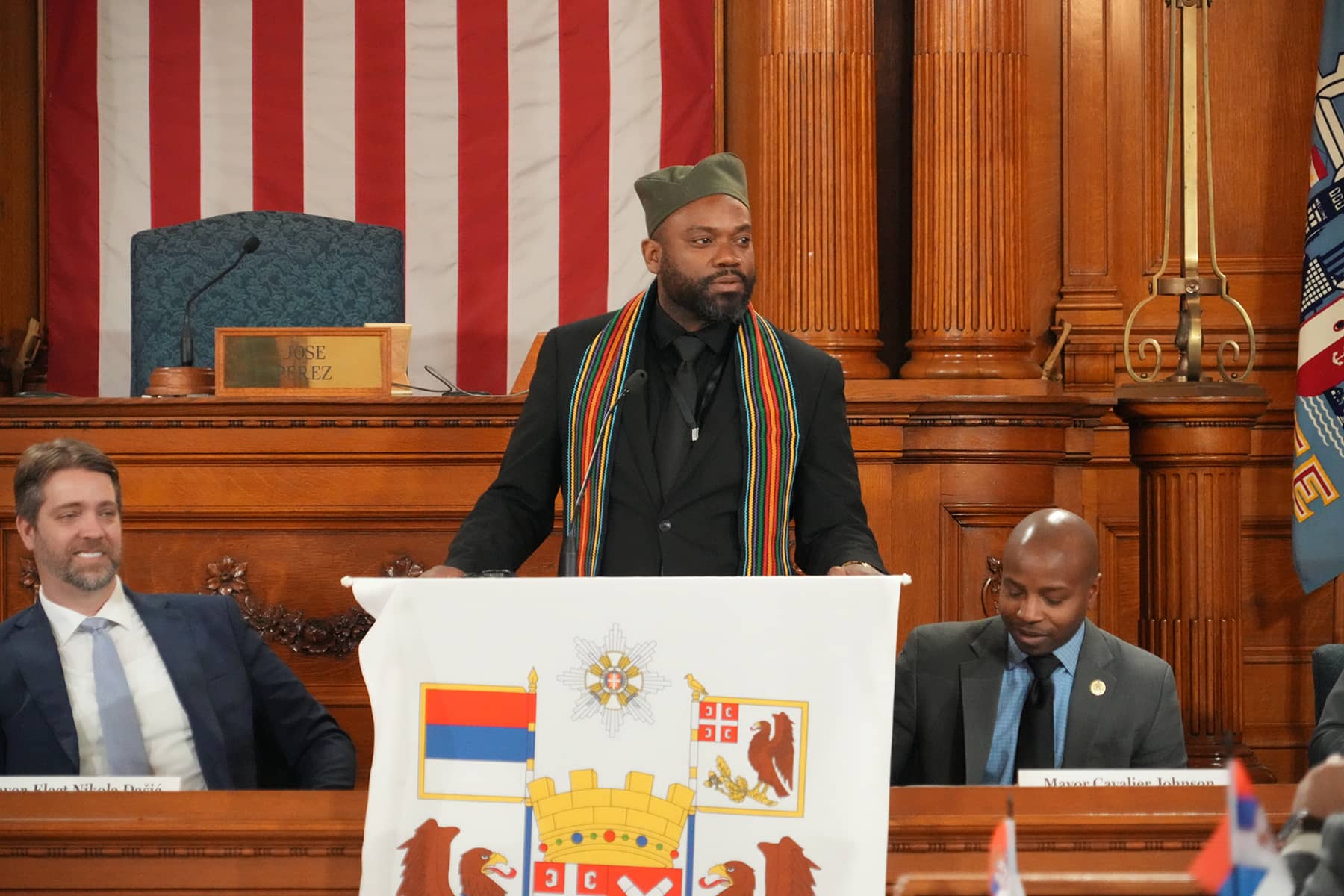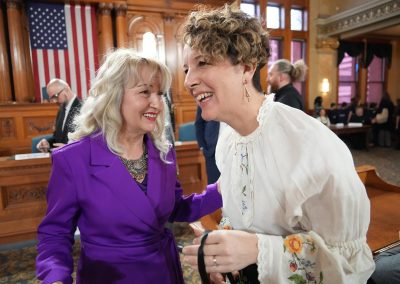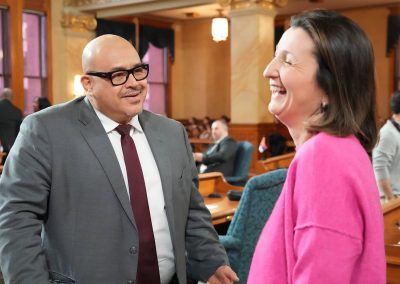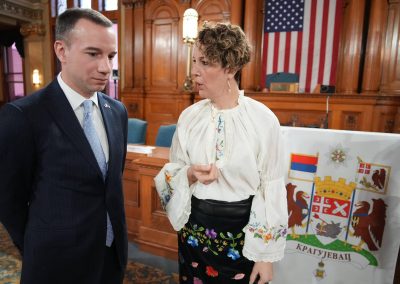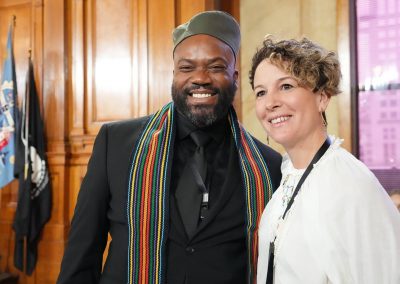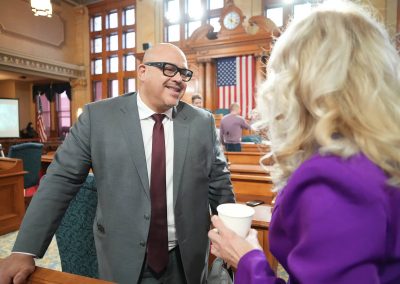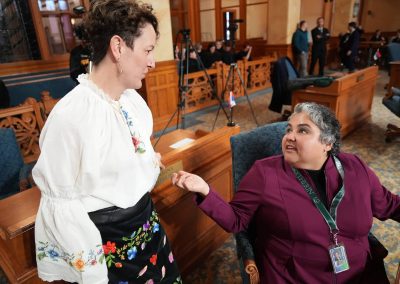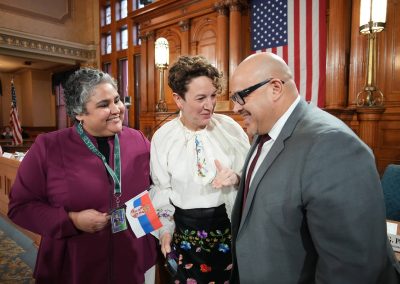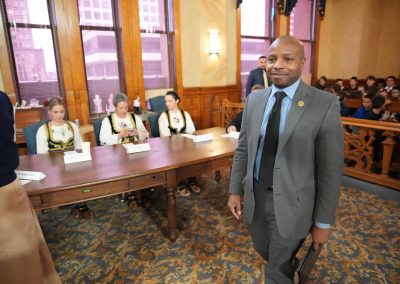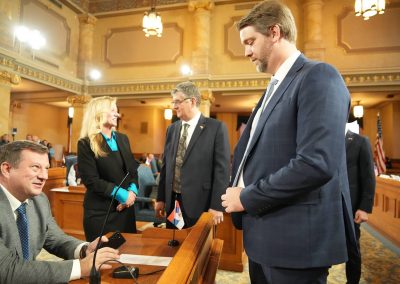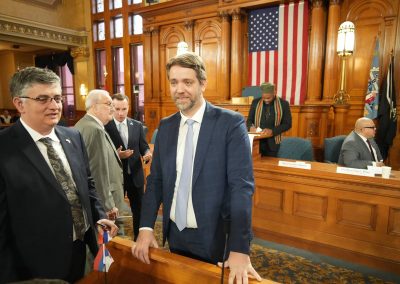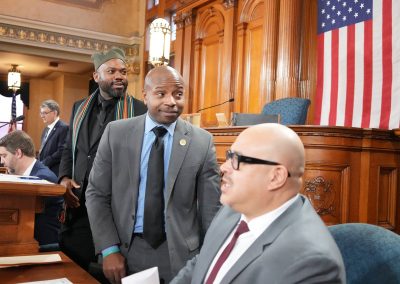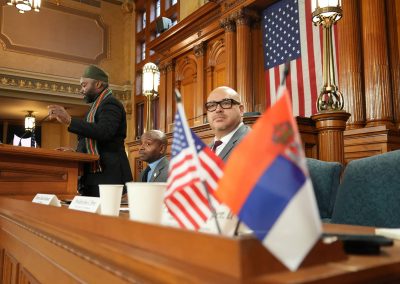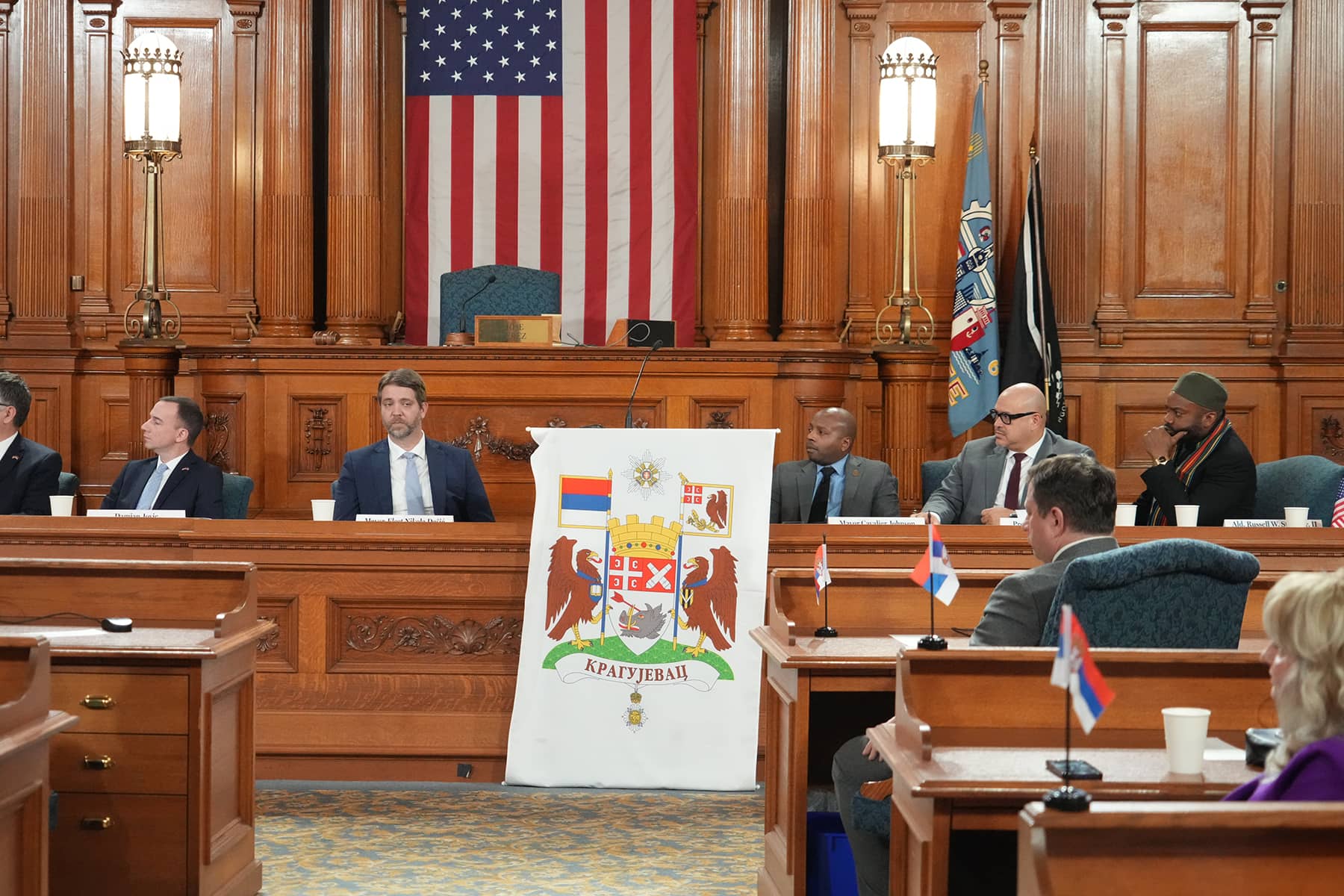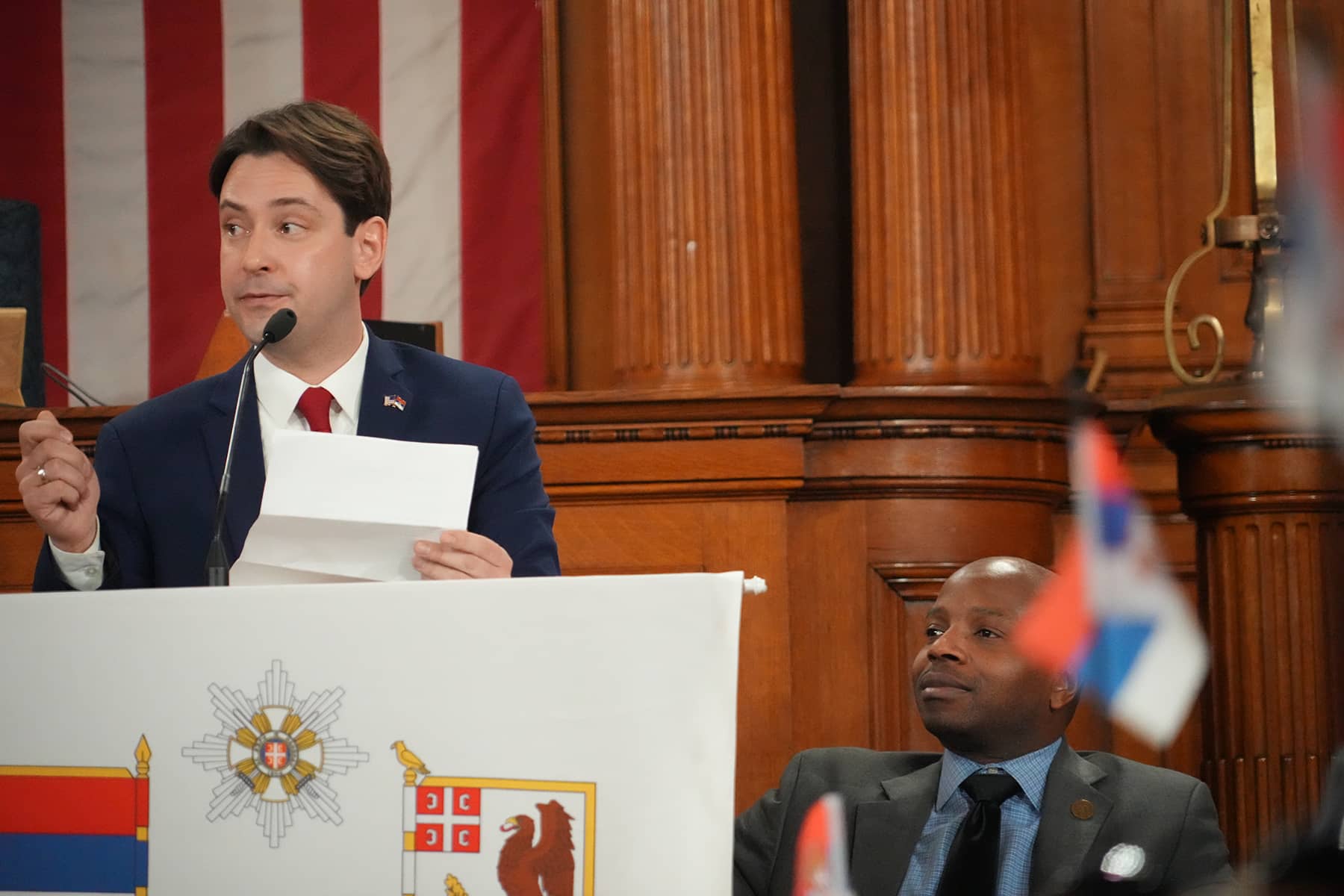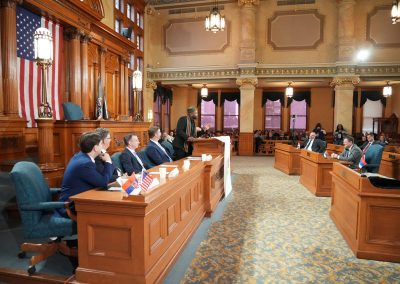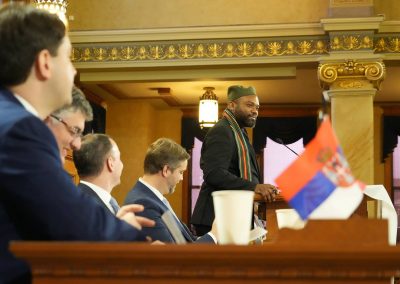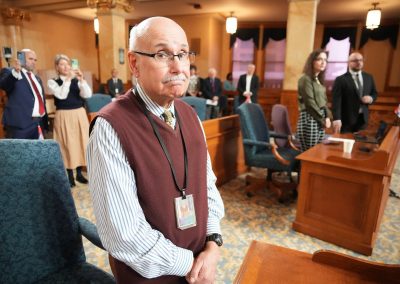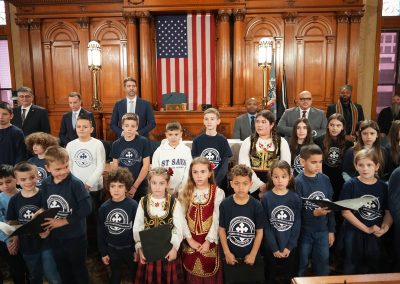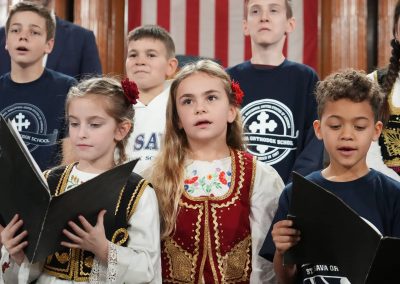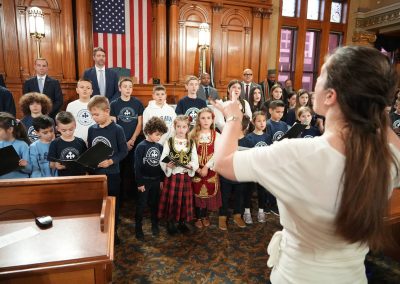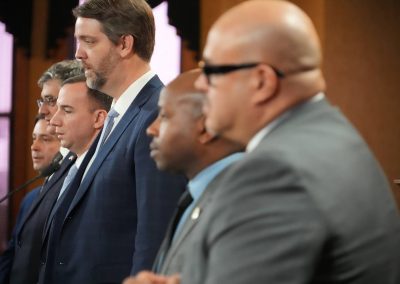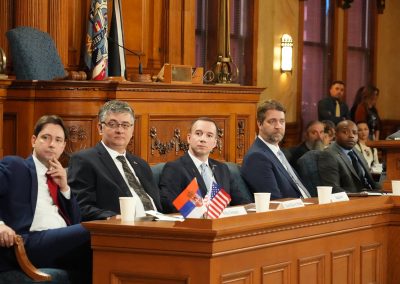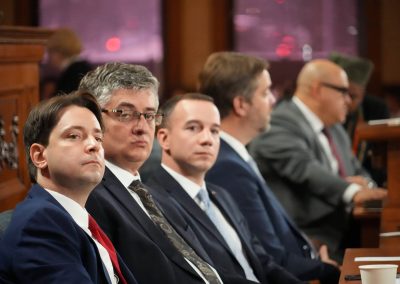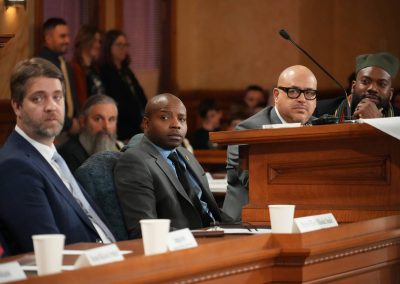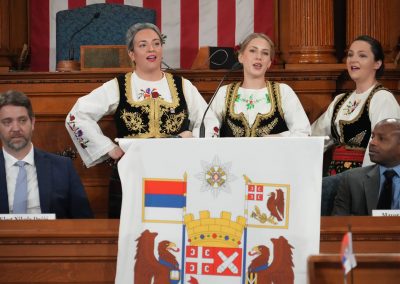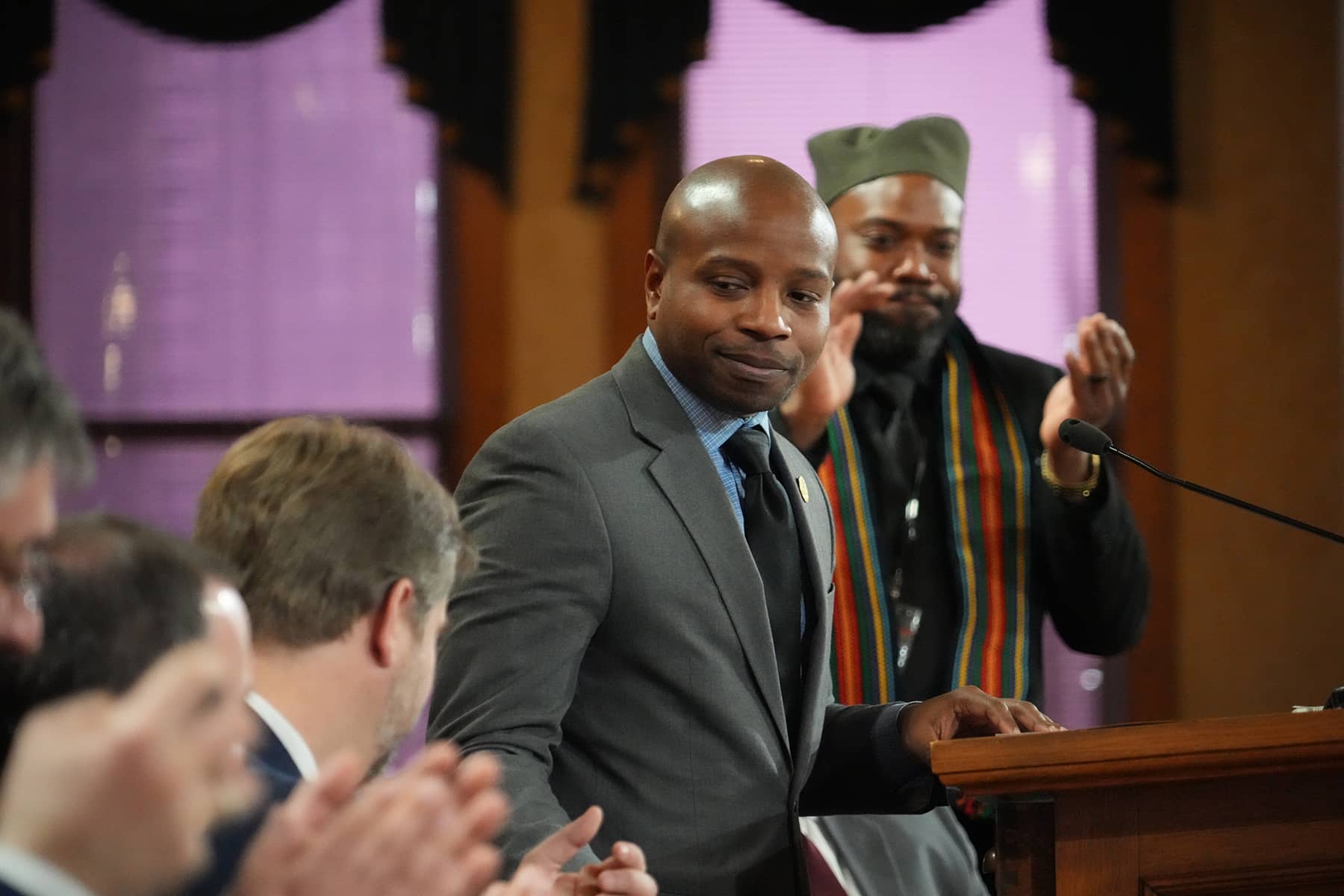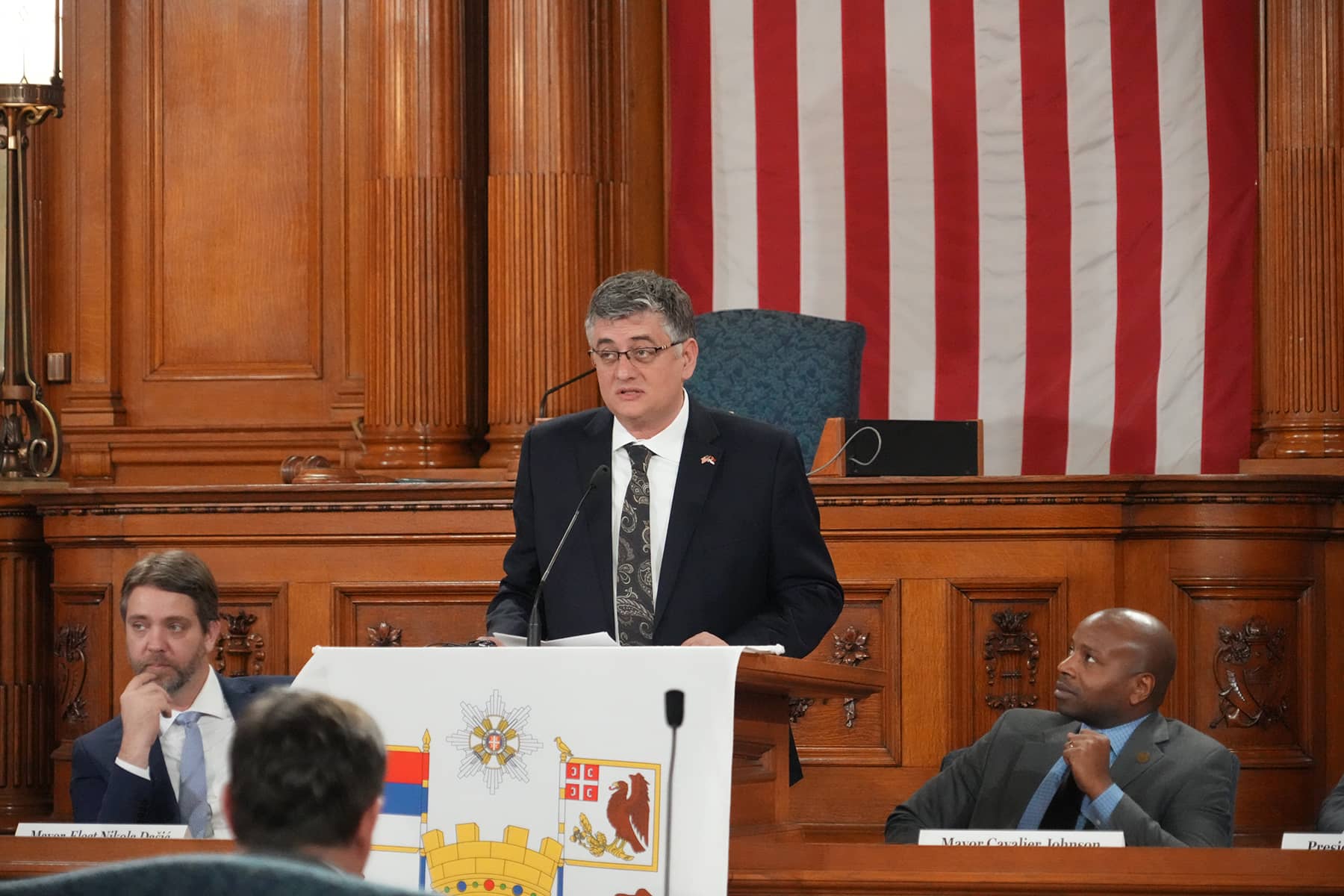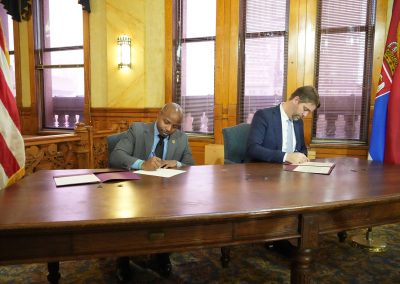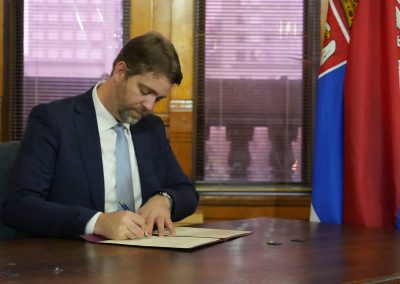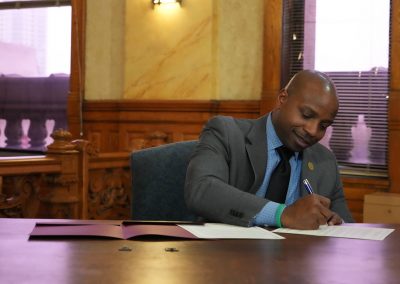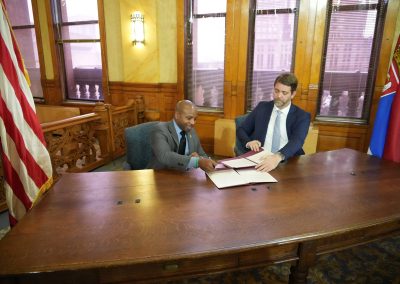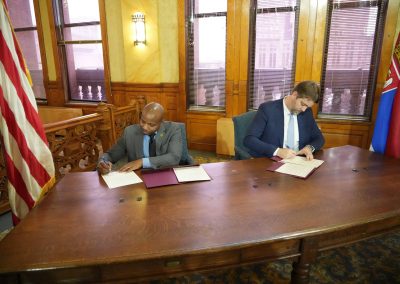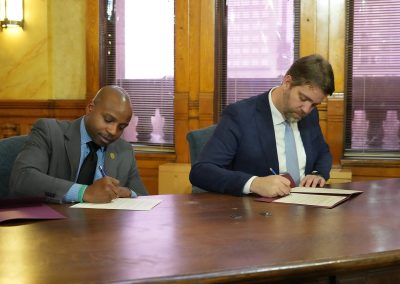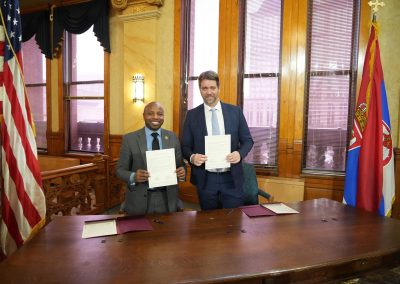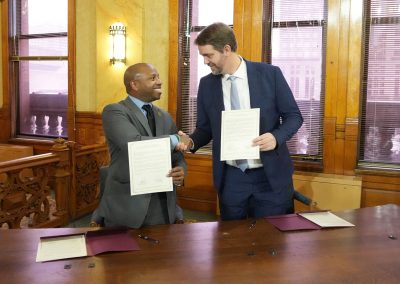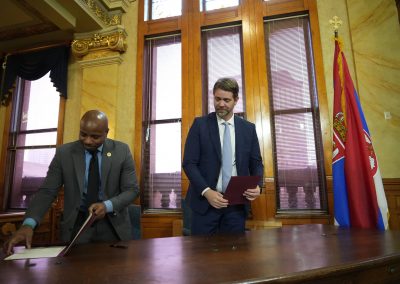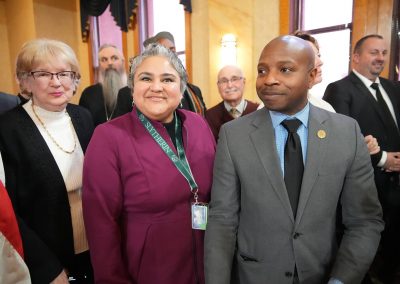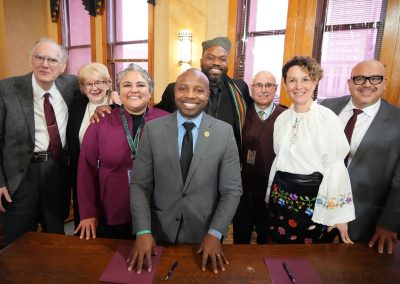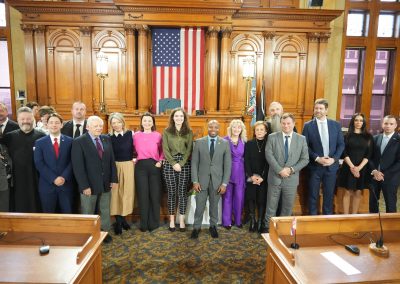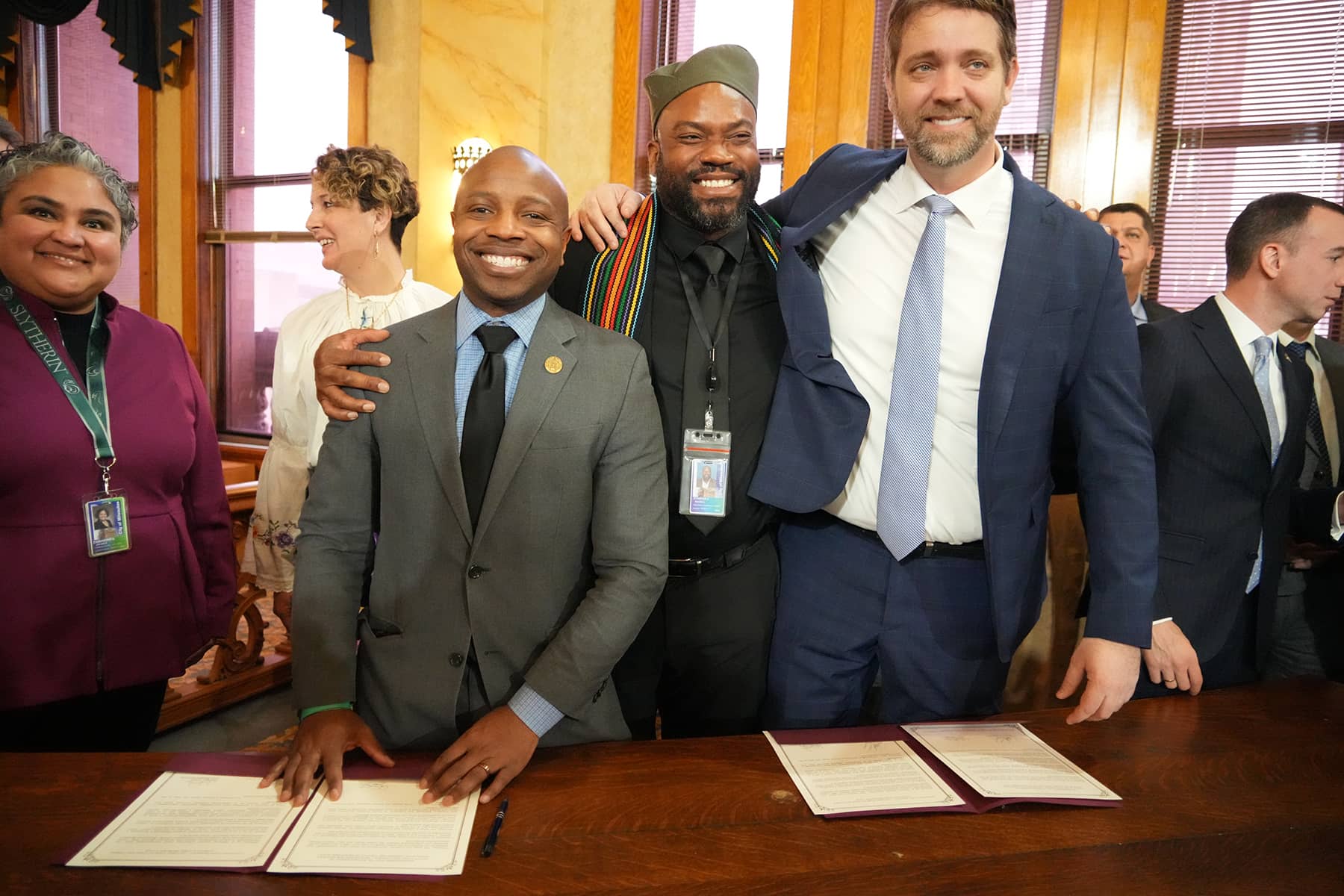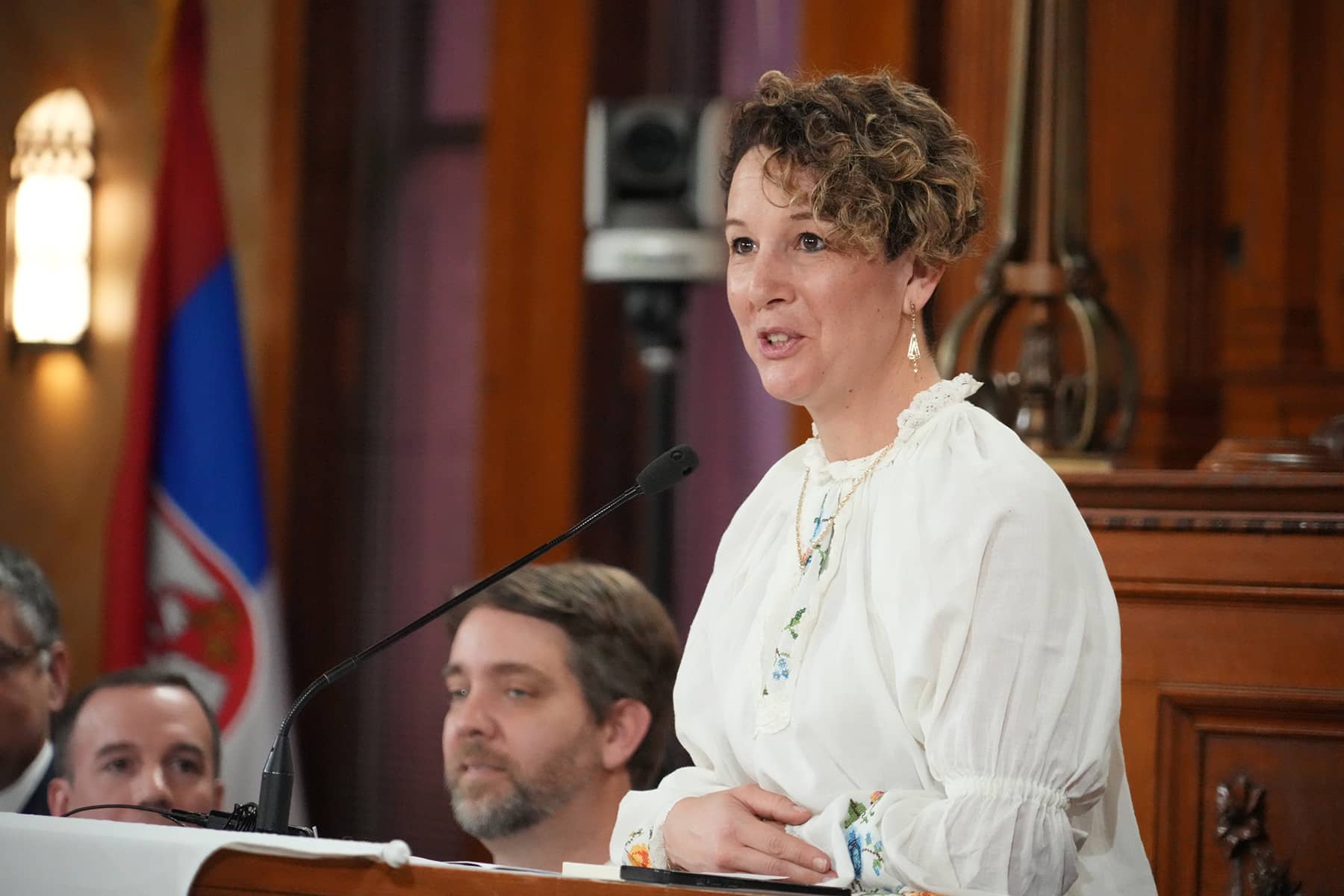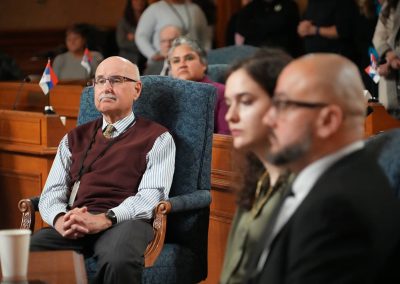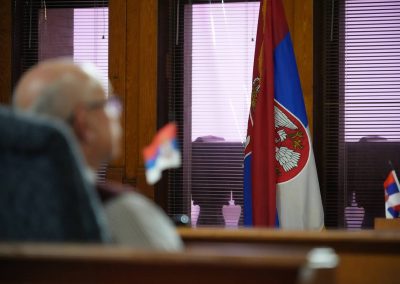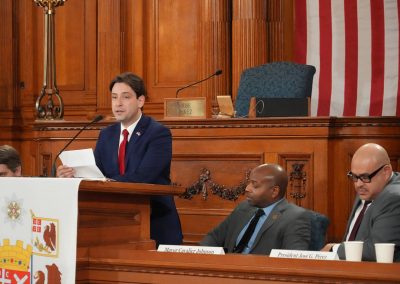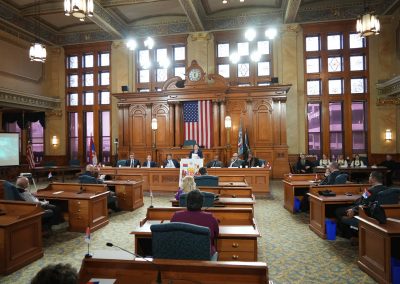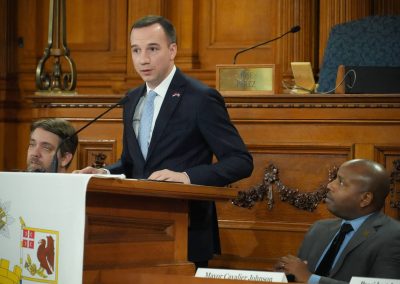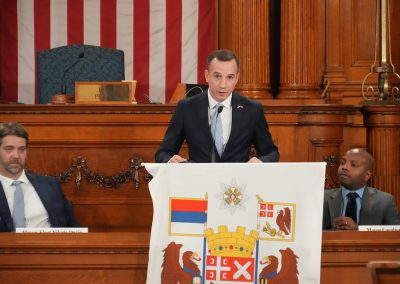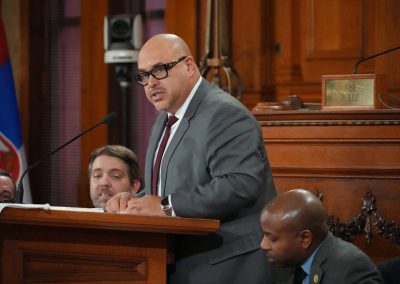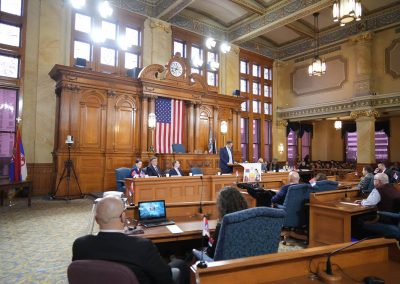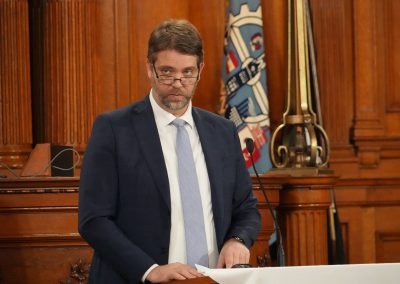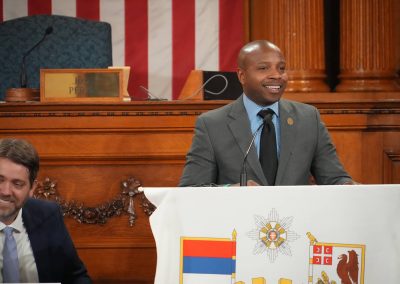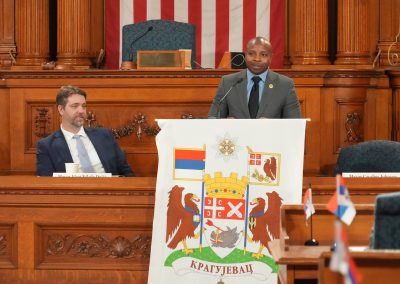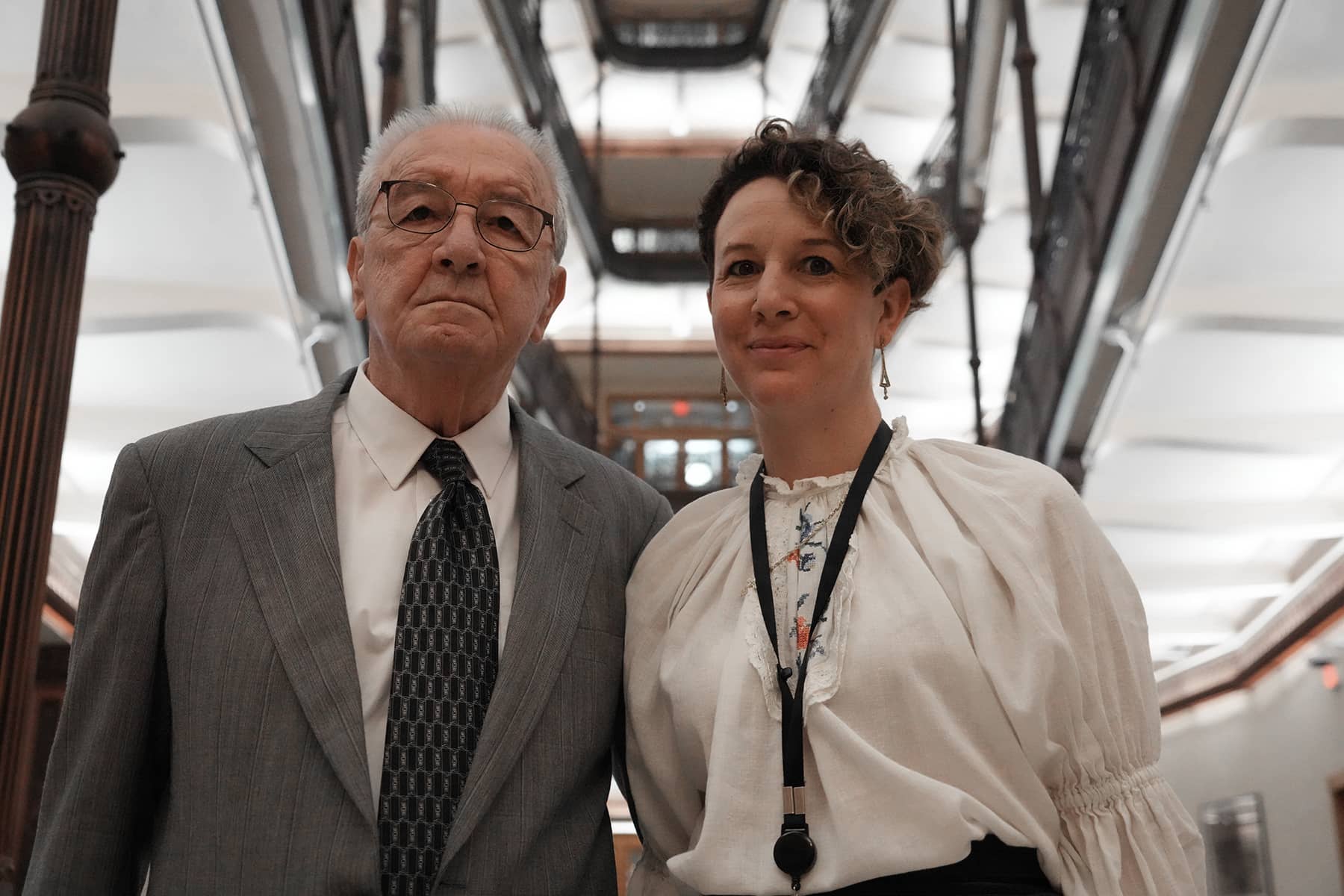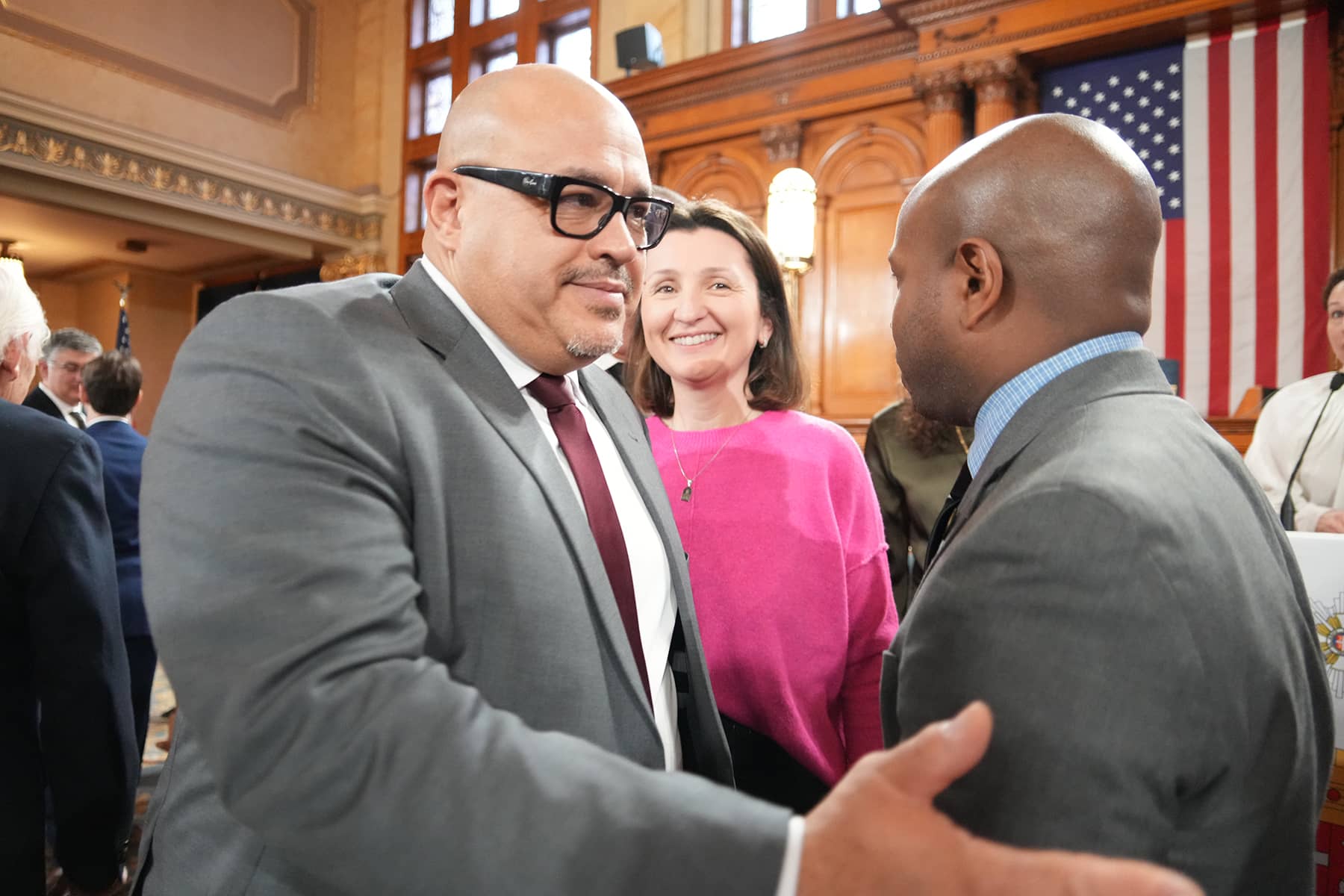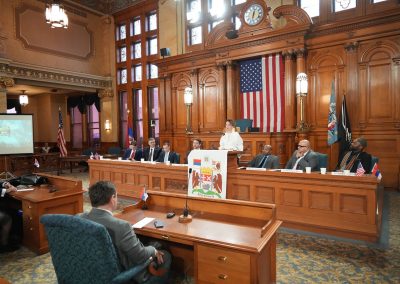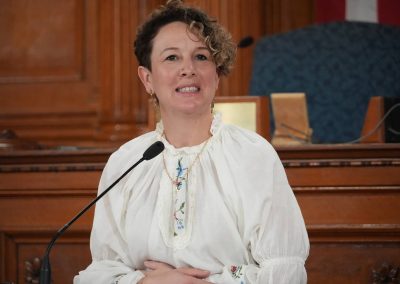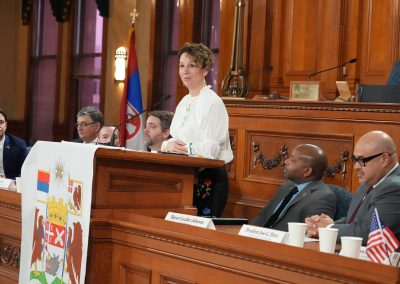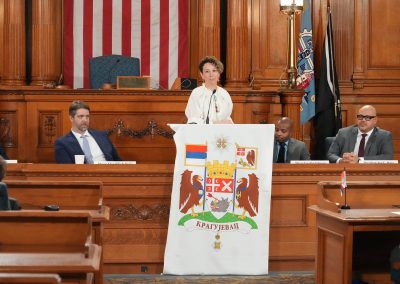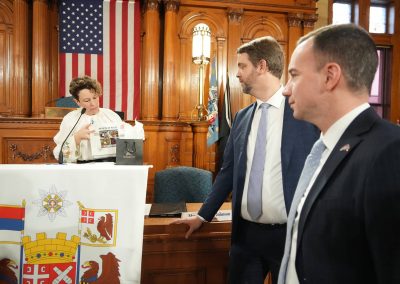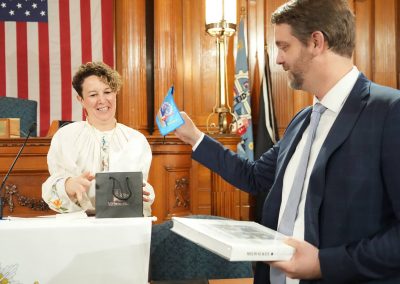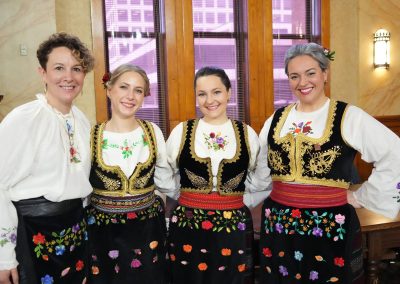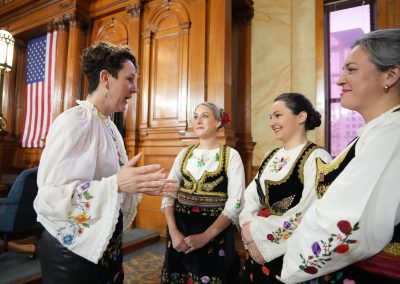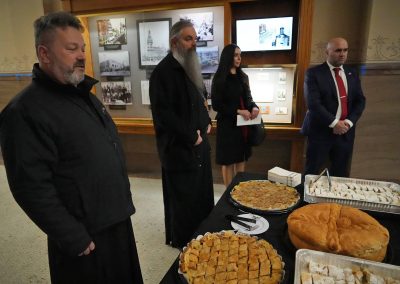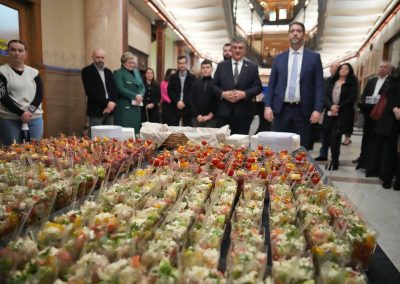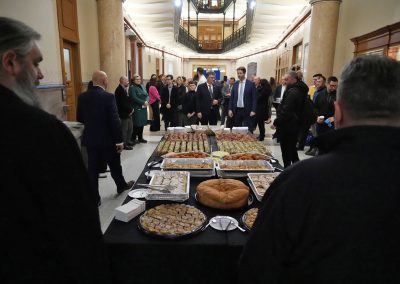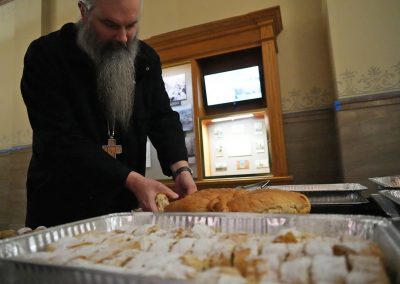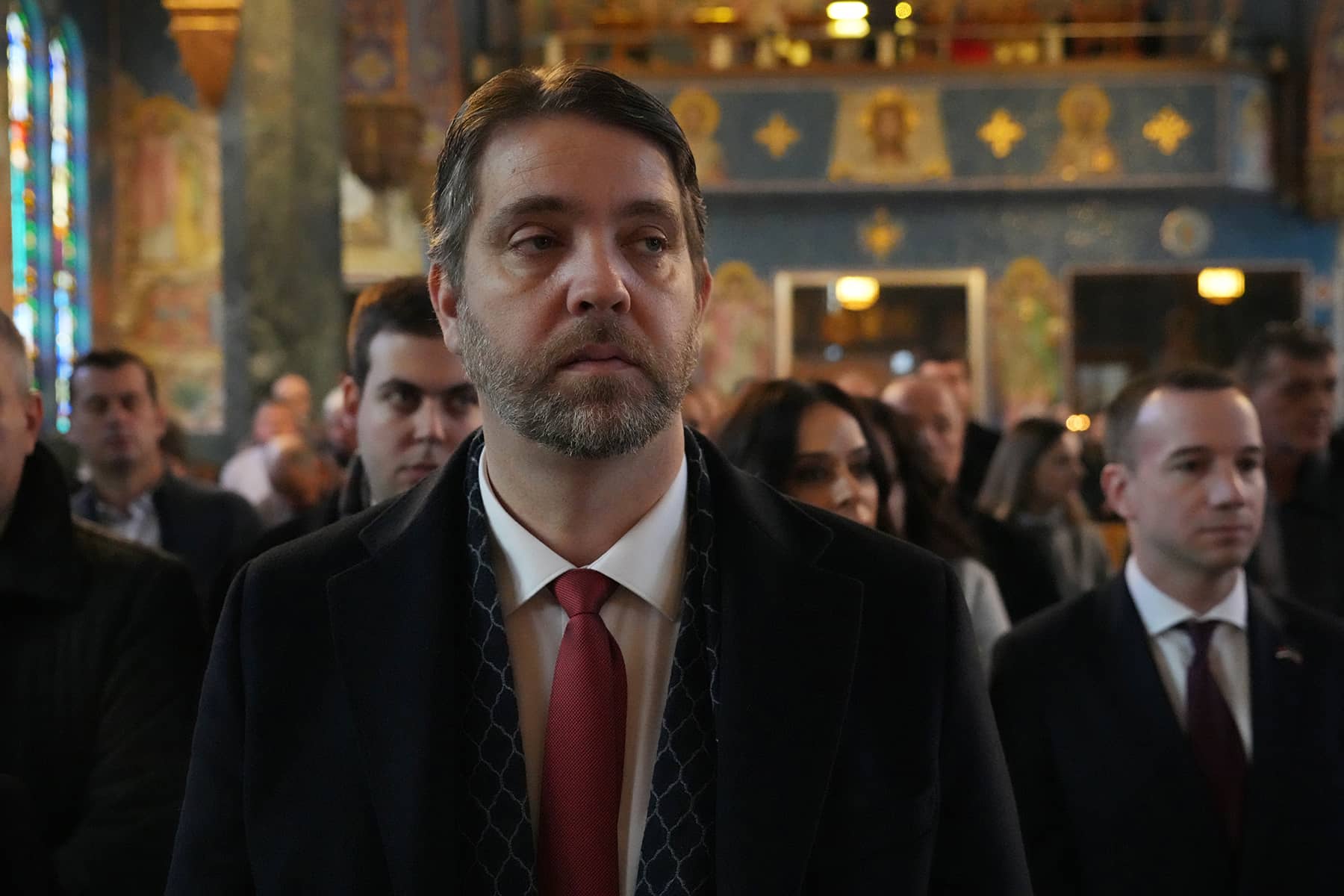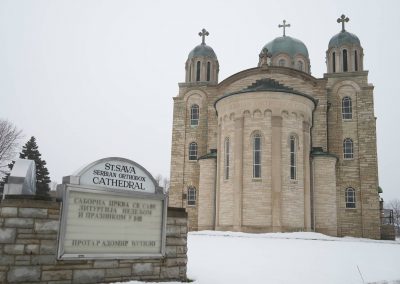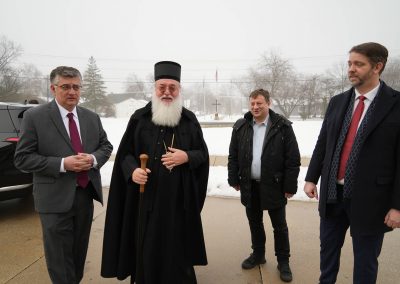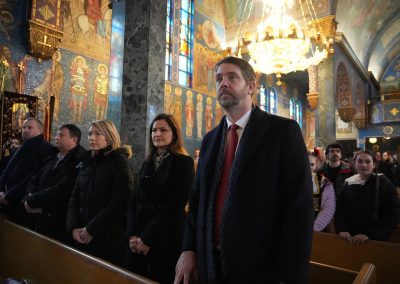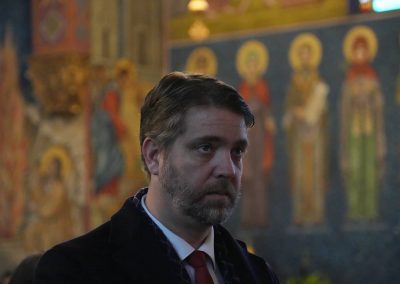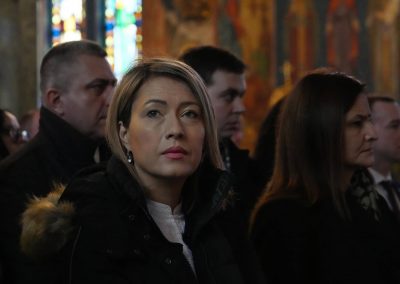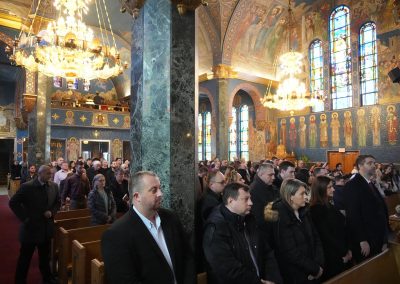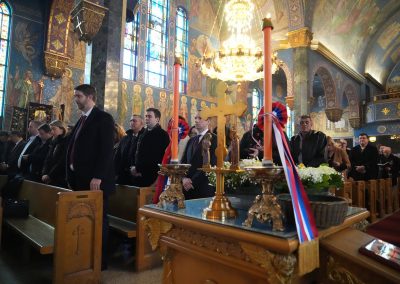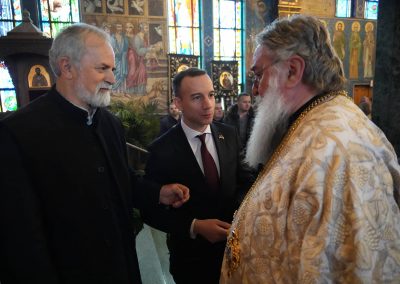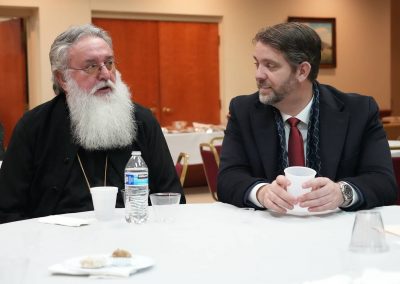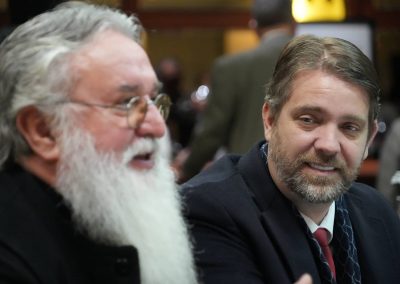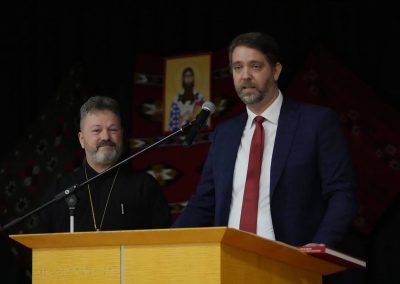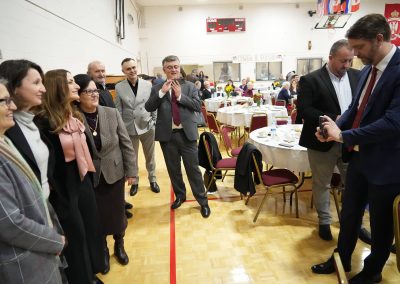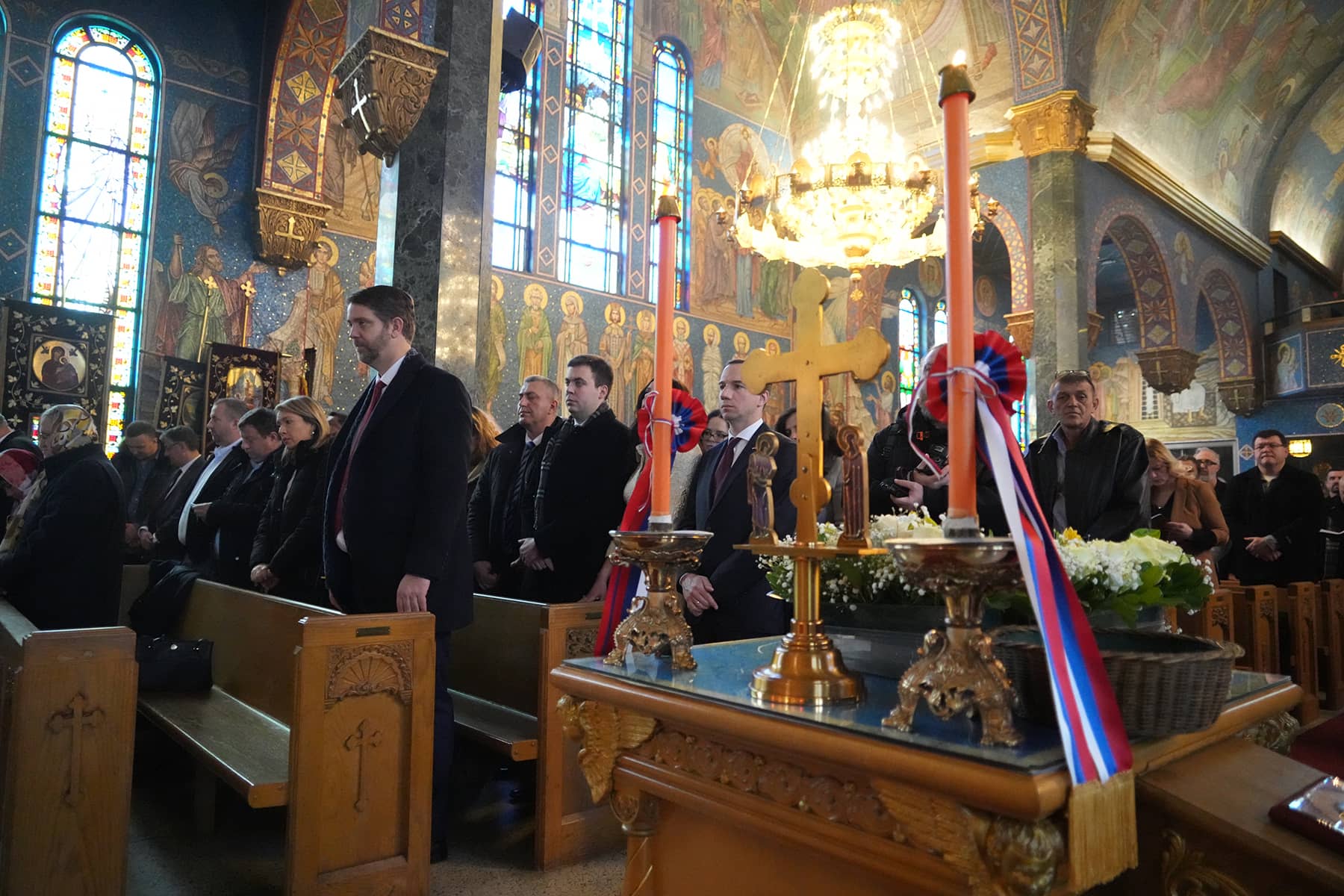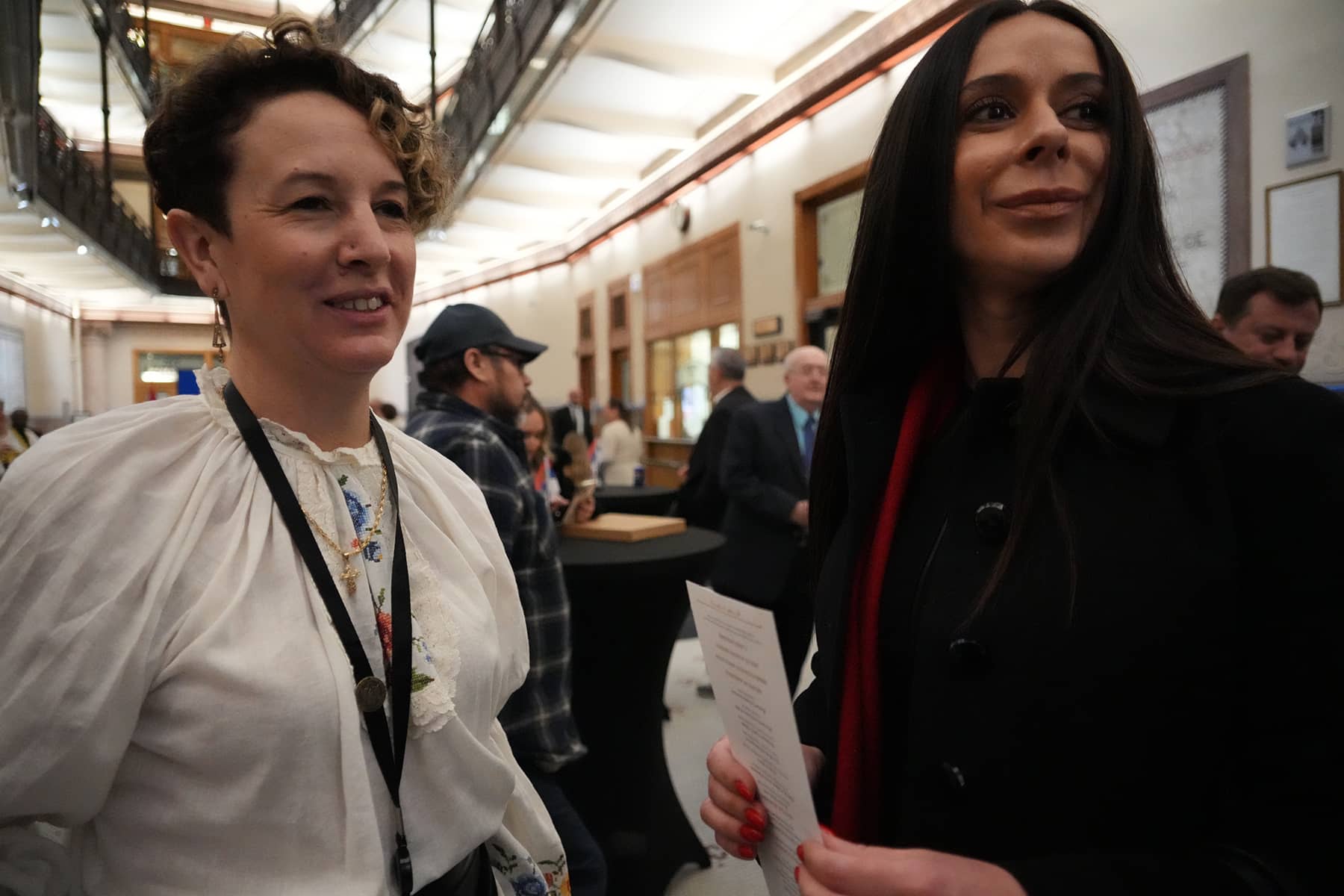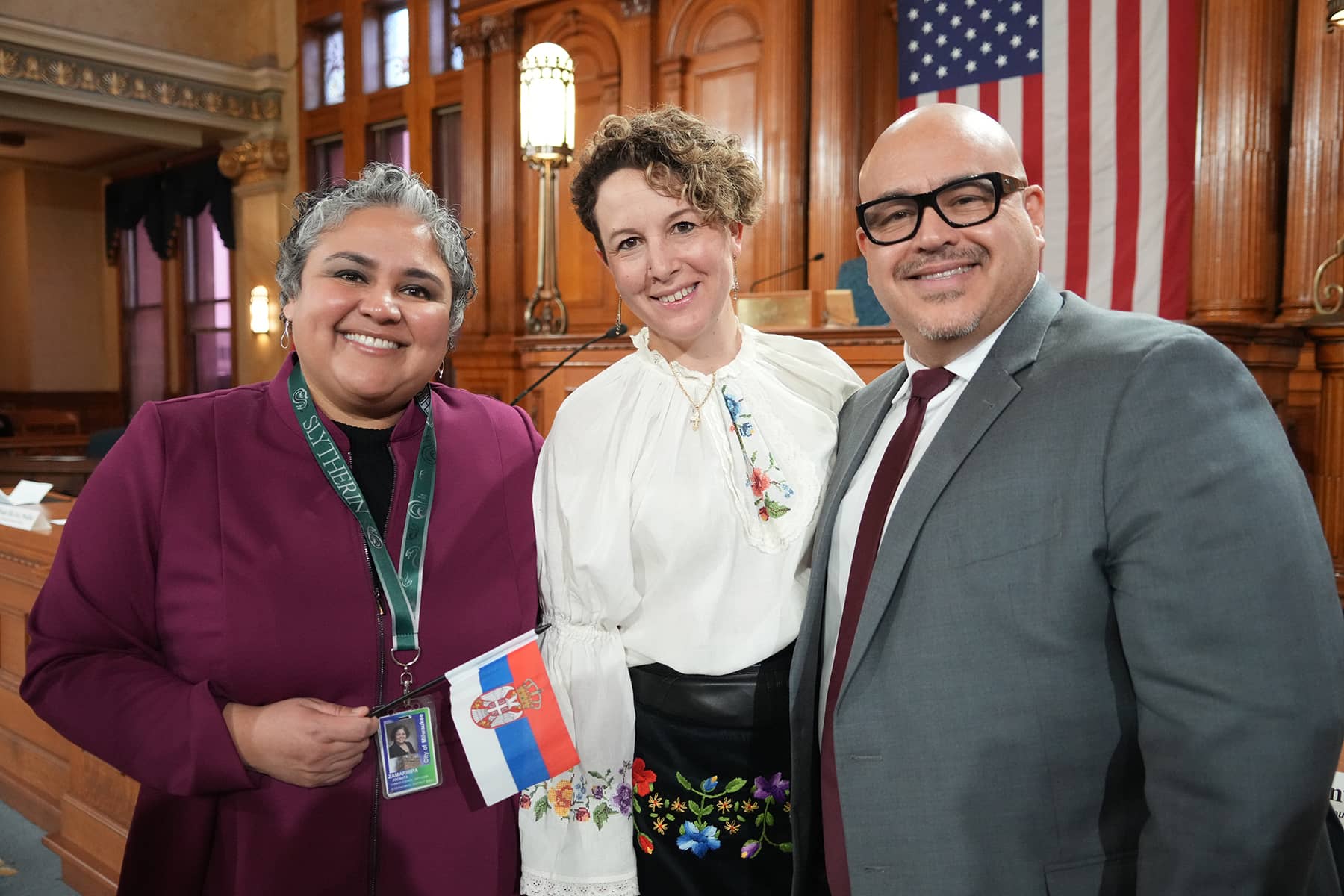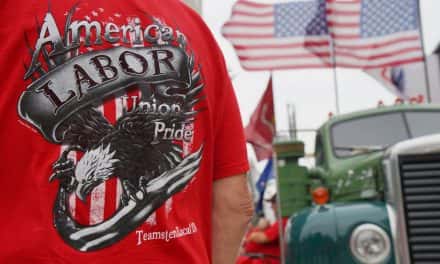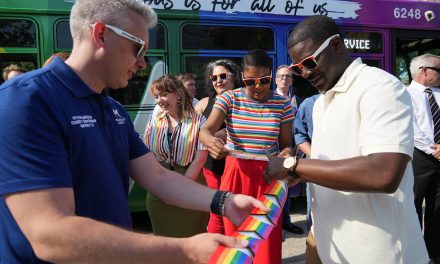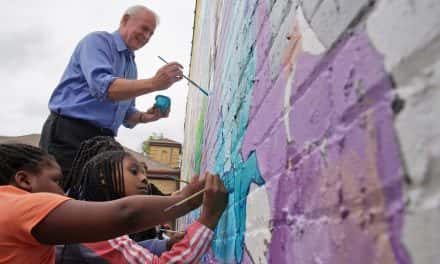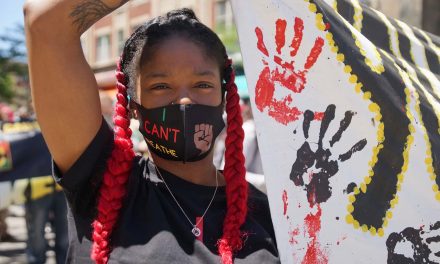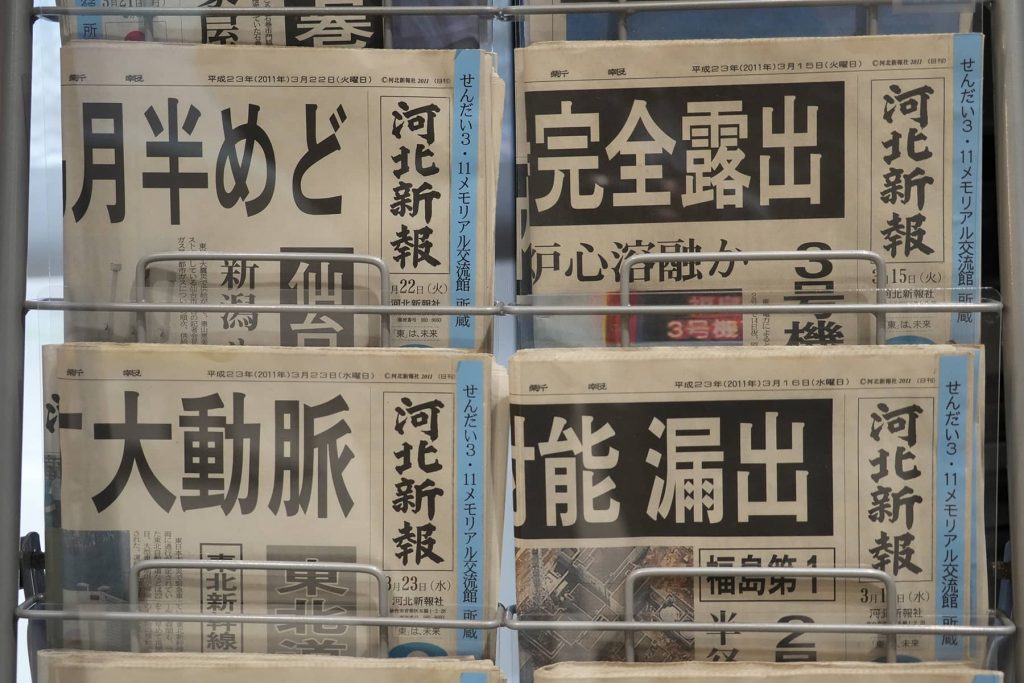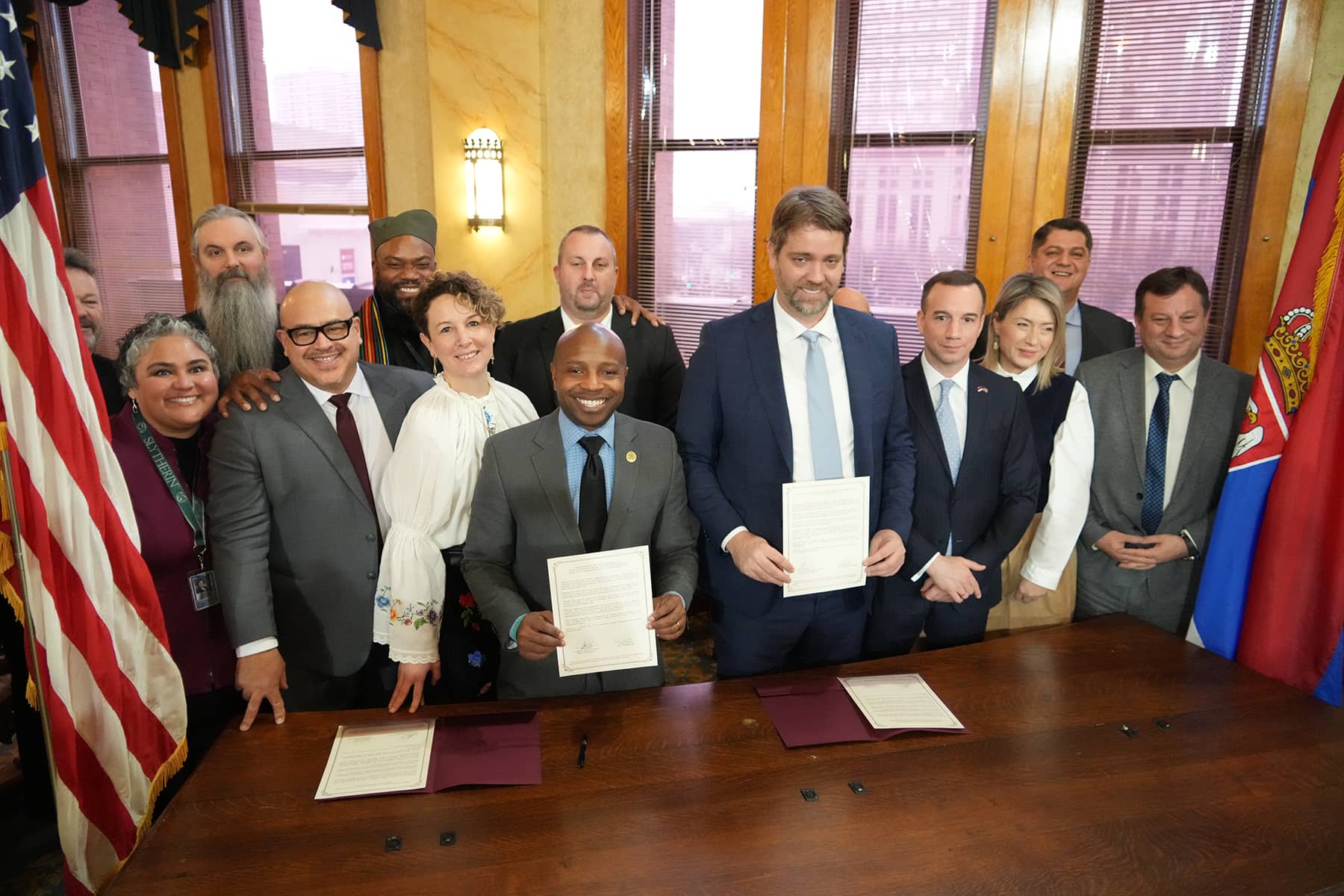
After celebrating its birthday and 178-year history on January 25, the City of Milwaukee began a new chapter of international friendship and cooperation on January 26 with Kragujevac, a city in the heart of Serbia’s Šumadija region.
Separated by continents yet united by shared aspirations, both cities formalized their bond as Sister Cities at the agreement signing ceremony. Kragujevac became Milwaukee’s 7th Sister City after Abuja, Nigeria in December, and 2nd after Zadar, Croatia to have been part of the former Yugoslavia.
The historic event was witnessed by a gathering of city officials, leaders from the local Serbian American community, and area residents. It reflected a mosaic of cultures and generations.
“We joined in this arrangement in the spirit of goodwill, respect, and cooperation, as well as the spirit of peace. Kragujevac and Milwaukee have many similarities. We have many cultural traditions, strong industries, and hard-working residents,” said Mayor Cavalier Johnson, City of Milwaukee. “We also share our desires to be communities that grow and thrive in the future. We want to build strong futures in a changing world. So while our Sister City relationships might be considered symbolic, I see a relationship that is much more than that. I see opportunities for economic interaction.”
The establishment of a Sister City relationship between Milwaukee and Kragujevac was also a celebration of deep-rooted connections that span more than a century. Milwaukee has been home to Serbian immigrants since the late 1800s.
“I believe that the cooperation between Kragujevac and Milwaukee, based on the exchange of ideas and experience, will be both fruitful and long-term. It is an opportunity to exchange cultural values, business opportunities, and exceptional experiences between our cities. That will all contribute to the strengthening of our international relationships and joint development,” said Mayor Nikola Dašić, City of Kragujevac. “For this cooperation, we want to build bridges between our cultures and create a space for innovation, progress, and understanding. I am proud to say that Kragujevac is friends with Sister Cities all over the world. And this is not just a formality, but a serious commitment to strengthening international relationships. So I am happy to welcome Milwaukee into our big family.”
The early settlers were among the pioneers who shaped the city’s cultural and social landscape. They were skilled, hard workers, who took tough jobs in industries like meatpacking and construction. After World War II, many Serbs worked in the assembly lines of some of Milwaukee’s biggest factories, such as Master Lock, Bucyrus Erie, and Harley-Davidson.
“When I came to America, my home country as I knew it no longer existed. Why? Mistrust, misunderstandings, and those mistakes led to a war that tore it apart. My experience as a kid living through the war, and then starting a new life as an immigrant, has taught me that we must learn from each other in order to avoid those kinds of misunderstandings,” said Miroslav Jovic, President of St. Sava Serbian Orthodox Cathedral. “I often wondered how I could share this belief, and the importance of this idea, with people here in Milwaukee and back home. It begins with relationships and friendship. And now we have a way to build a deeper connection, through our Sister Cities program with Kragujevac, Serbia.”
The signing ceremony on January 26 was also more than a formal event, it was a reunion of sorts, bridging the past and present, gathering together multiple generations of Serbian descendants alongside city officials and delegates from Serbia. It was a vibrant display of the shared heritage.
Along with Jovic and Ruza Sasich, Milwaukee County Deputy Clerk Stefan Dostanic came up with the idea to establish a Sister City relationship between Milwaukee and a city in Serbia. He said that the agreement was not just connecting two locations on a map. It was uniting people, cultures, and communities in bonds of friendship, cooperation, and mutual growth.
“I speak from the heart when I say it is very significant for me to establish this Sister City relationship, between the city where I was born and the city where my son was born,” said Dostanic. “Our aspirations and dreams are truly interconnected. We should embrace this opportunity to build a partnership that stands as a beacon of international friendship and cooperation.”
Dostanic said the new relationship presented a unique opportunity for both cities to enhance cultural understanding, foster economic growth, and collaborate on educational issues.
“My goal here, the ultimate goal, is to bring us both truth, peace, and justice. This effort brings us closer to that, in my opinion,” added Dostanic.
Kragujevac, known for its historical significance as the first capital of modern Serbia and a cradle of the Balkan Industrial Revolution, shared many parallels with the making of Milwaukee.
The signing ceremony was interspersed with cultural displays, including a promotional film about Kragujevac that showcased its industrial power and cultural heritage. The attendees were also treated to several vocal performances which captivated the audience.
Alderman of the 15th District and Sister Cities Committee Chair, Russell W. Stamper II, said he hoped that the people of Milwaukee and Kragujevac would cherish their new and unique relationship. He also looked forward to a flow of new knowledge between the two cities.
“International partnerships help promote peace and diplomacy, and people-to-people relationships are where we can foster cultural, educational, and economic exchanges. It strengthens our understanding of the world we live in for expanding new businesses,” said Alderman Stamper. “I have learned that the Sister City program is about joining humanity closer together, partnering, and helping each other grow.
He added that as Milwaukee developed a better sense of how important international relationships were, it would be more apparent how much could be gained by having them.
“We all can learn from each other’s cultures. Even though we may be miles apart, we can share stories that enrich our understanding of humanity,” added Alderman Stamper. “Embracing people opens the door for empathy, fostering a world where differences are celebrated and not feared.”
For the Serbian community in Milwaukee, the agreement represented a historic milestone. It acknowledged their resilience and contributions to the city’s development, and strengthened their ties to Serbia. The presence of various generations of Serbian Americans at the ceremony underscored the sentiment.
As Milwaukee and Kragujevac embark on a new journey together, they stand as examples of how cities can come together in the spirit of mutual respect and collaboration.
Alderwoman of the 14th District, Marina Dimitrijevic, shared a story from her son asking “why do they call it a sister city.” She talked about siblings, and how lucky she was to have a sister. And why the title was fitting for the new relationship. It reminded her of an important part of Serbian culture – the sisterhood of Serbian women.
Then reflecting on her own Serbian heritage, Alderwoman Dimitrijevic explained what the bond with Kragujevac meant to her. She introduced her father, who sat beside her during the ceremony in the Common Council Chamber. Stanislav, who goes by Sasha, left Serbia 50 years ago – when it was still one of the republics within the country of Yugoslavia – to begin a new life in Milwaukee.
“You make that kind of journey with friends and family. And if you know a Serbian, what you will know is their whole family. Family is everything,” said Alderwoman Dimitrijevic. “My dad taught me that family is number one. So today, we are all family.”
She said that what her father came to Milwaukee for was an opportunity. The Sister City agreement demonstrated the ultimate opportunity, because it was a two-way street for both partners.
“Opportunity is our future,” added Alderwoman Dimitrijevic.
“If we are going to take advantage of the assumption that all people want peace, then the problem is for people to get together and to leap governments – if necessary to evade governments – to work out not one method but thousands of methods by which people can gradually learn a little bit more of each other.” – President Dwight D. Eisenhower, 1956
© PHOTO NOTE: All the original editorial images published here have been posted to mkeind.com/facebook. That Facebook collection of photos contains the Milwaukee Independent copyright and watermark for attribution, and may be used for private social media sharing. Do not download and repost images directly from this page.
- Strength of immigrant roots: How Marina Dimitrijevic builds a cultural bridge between Milwaukee and Serbia
- Serbia’s Kragujevac sees a new chapter of international cooperation with Milwaukee as a Sister City
- The Slava of St. Sava: A photographic journey into the experience of Serbian Orthodox faith in Milwaukee
- A nation at the crossroads: Understanding the global impact of Serbia’s internal political discontent
Lee Matz

